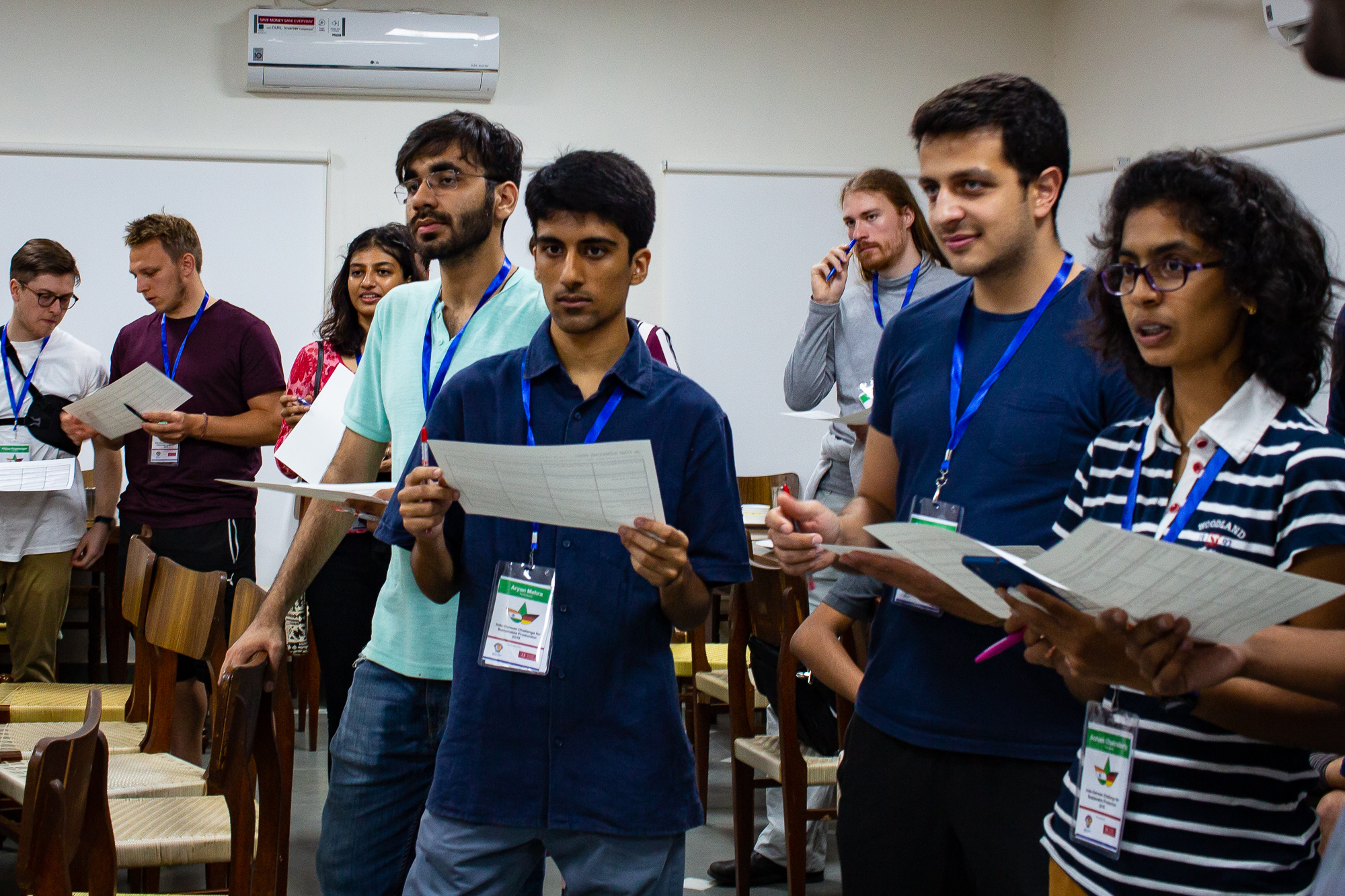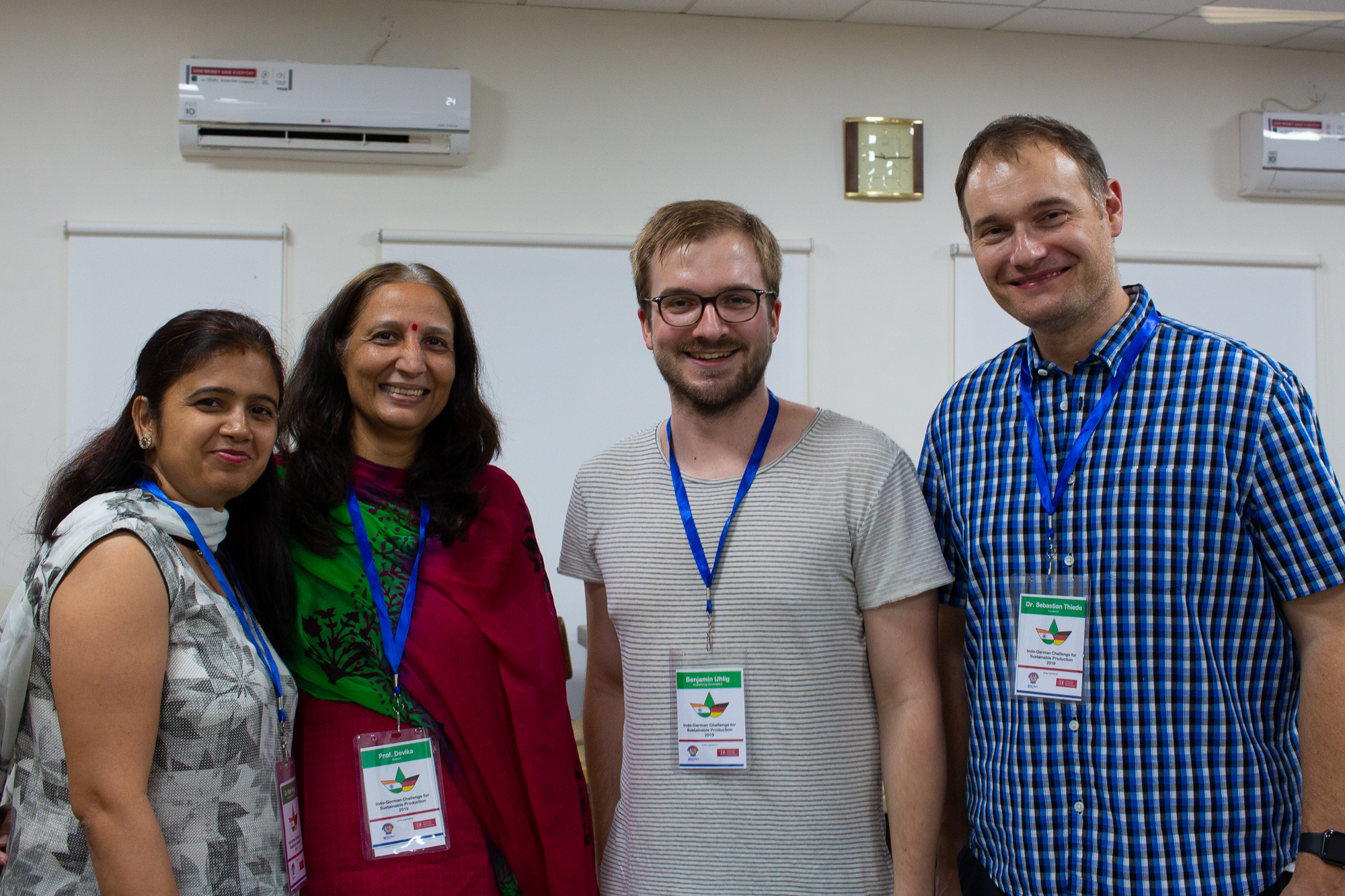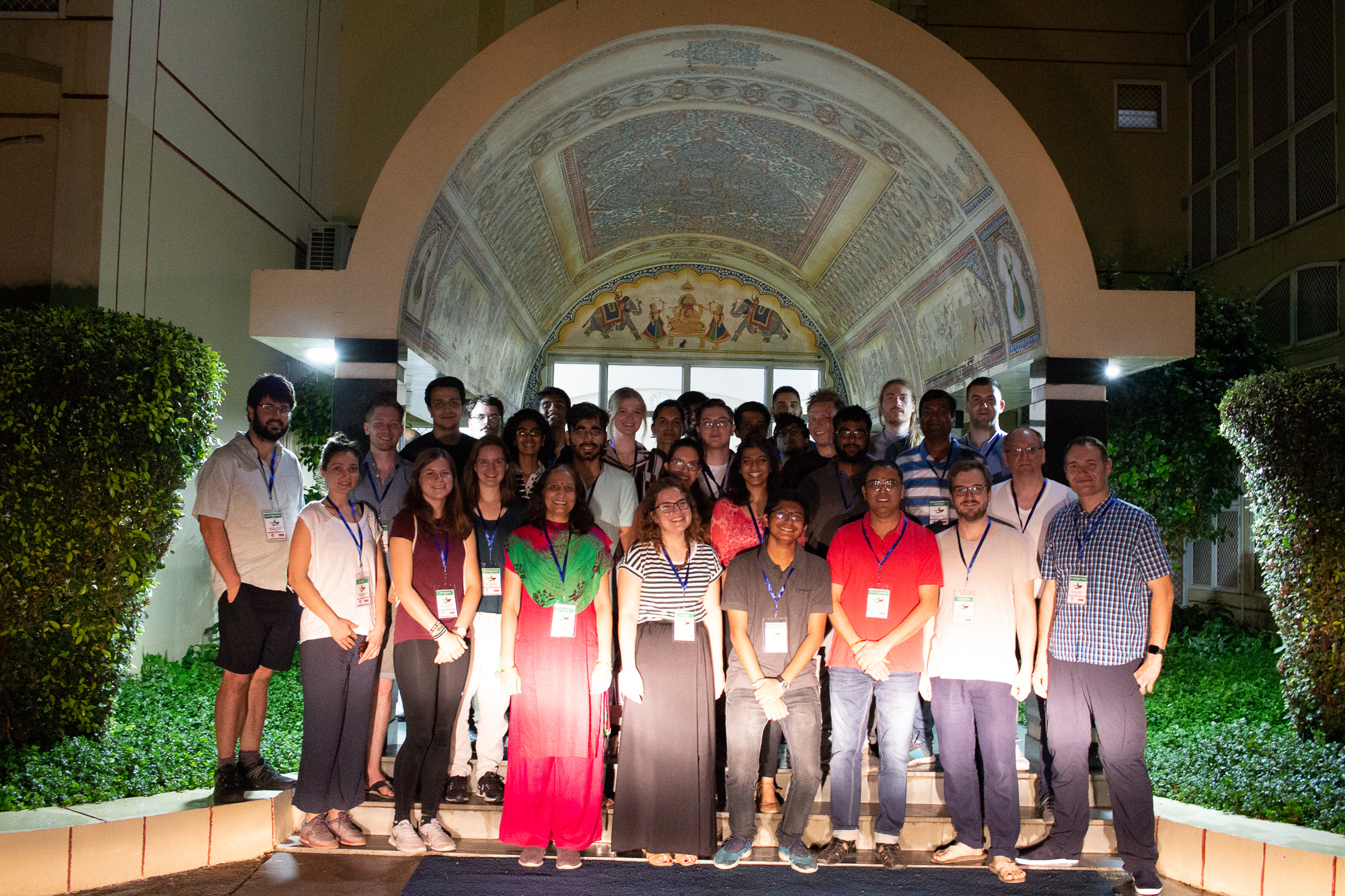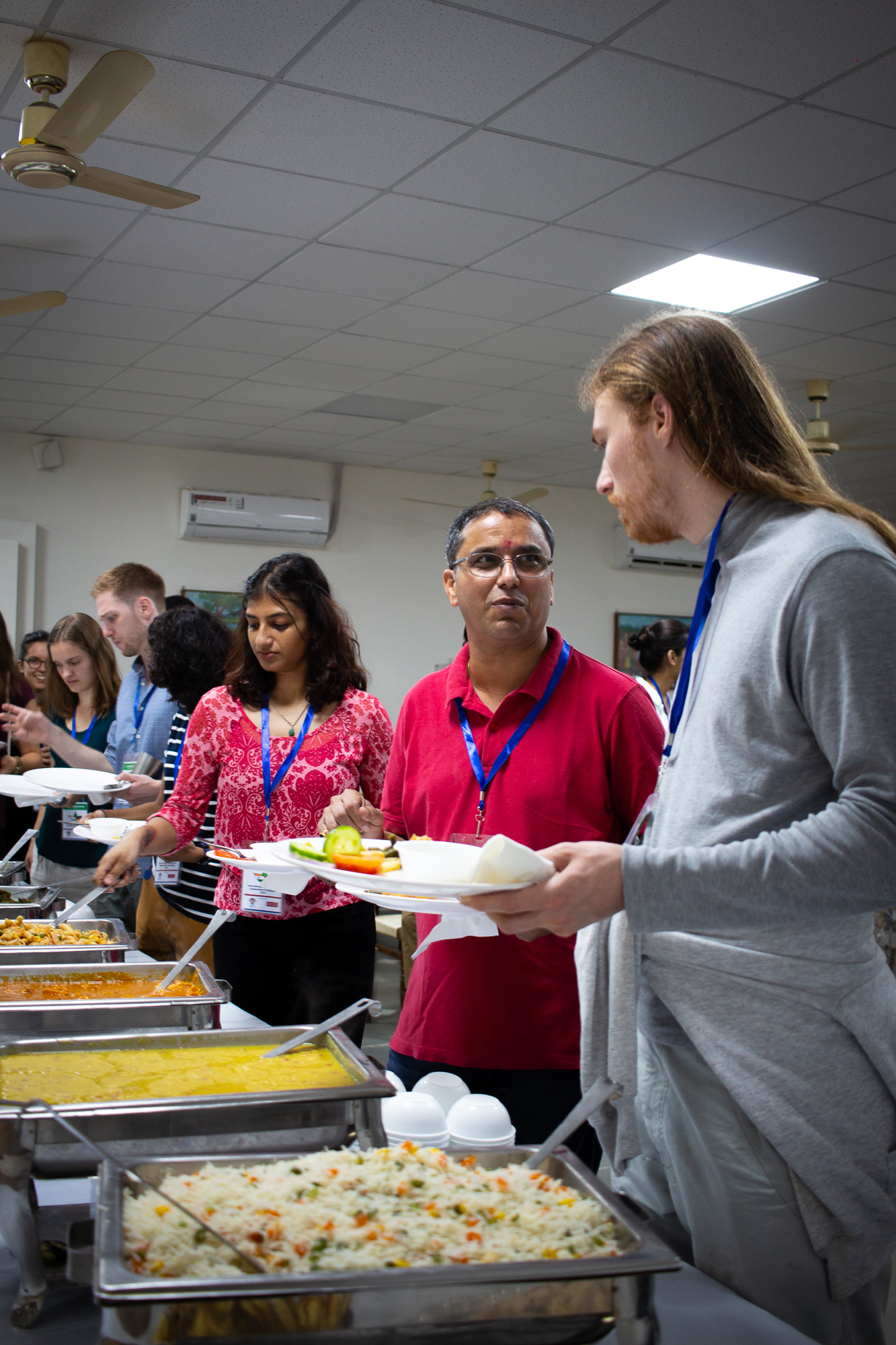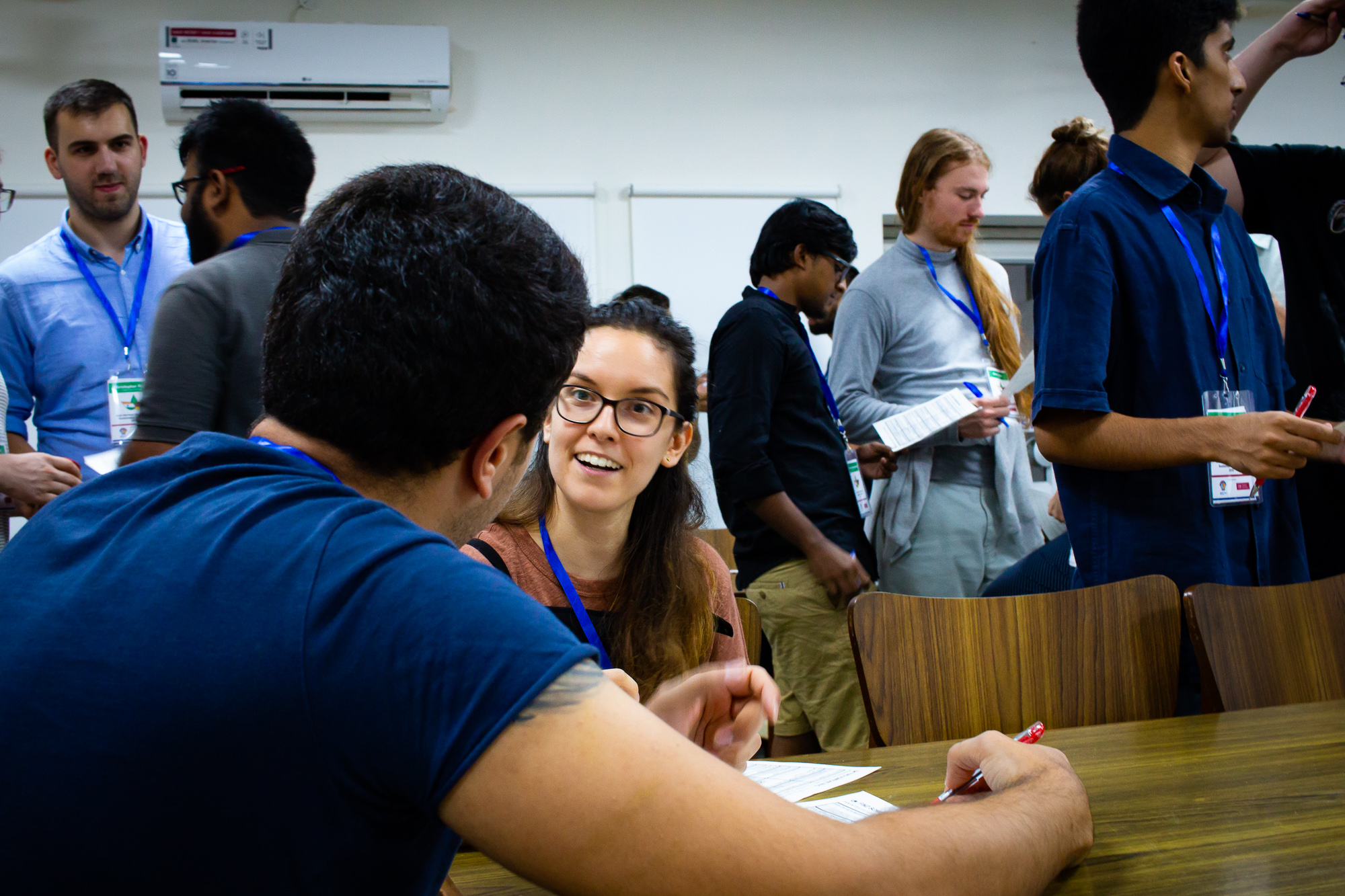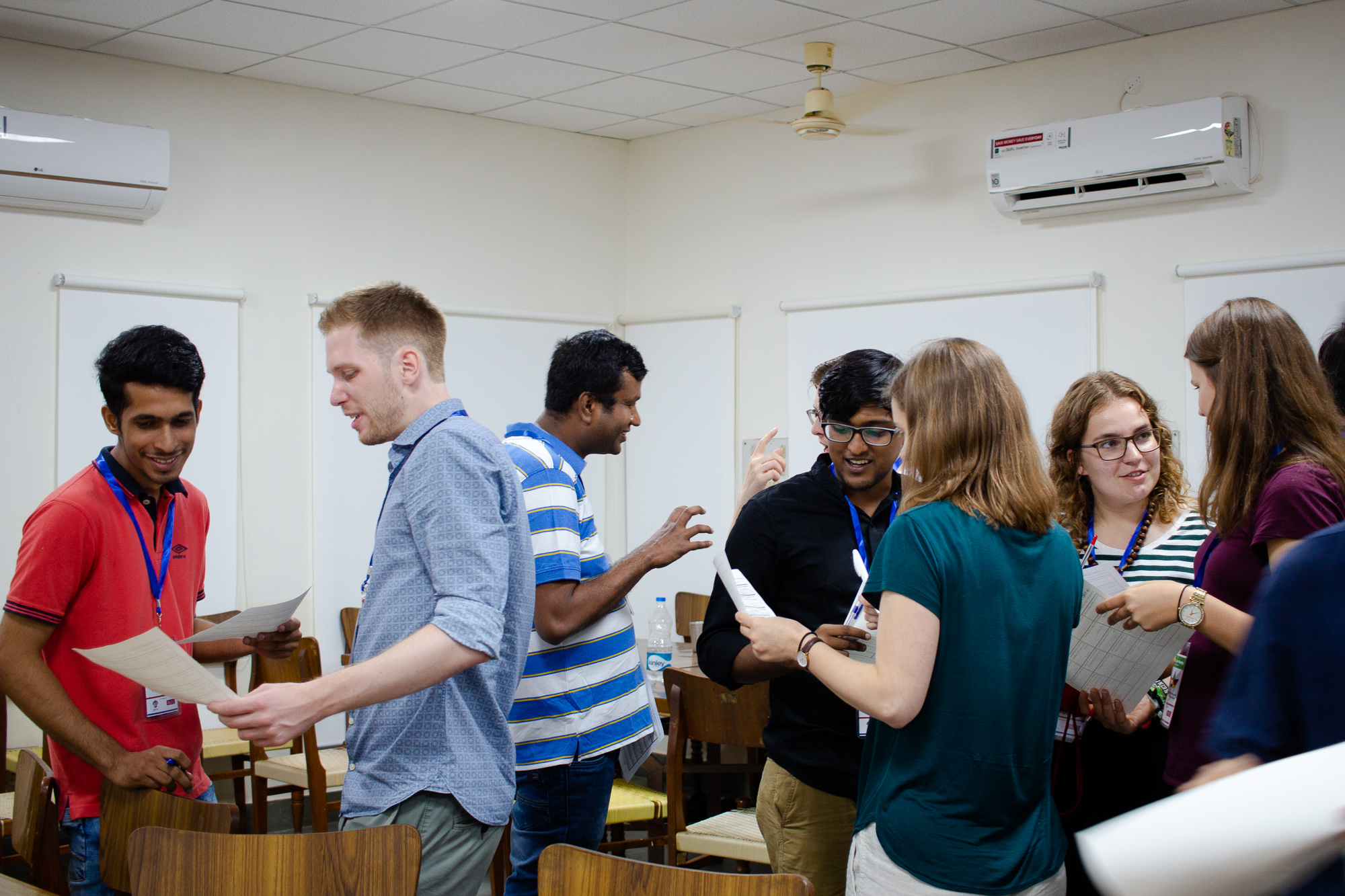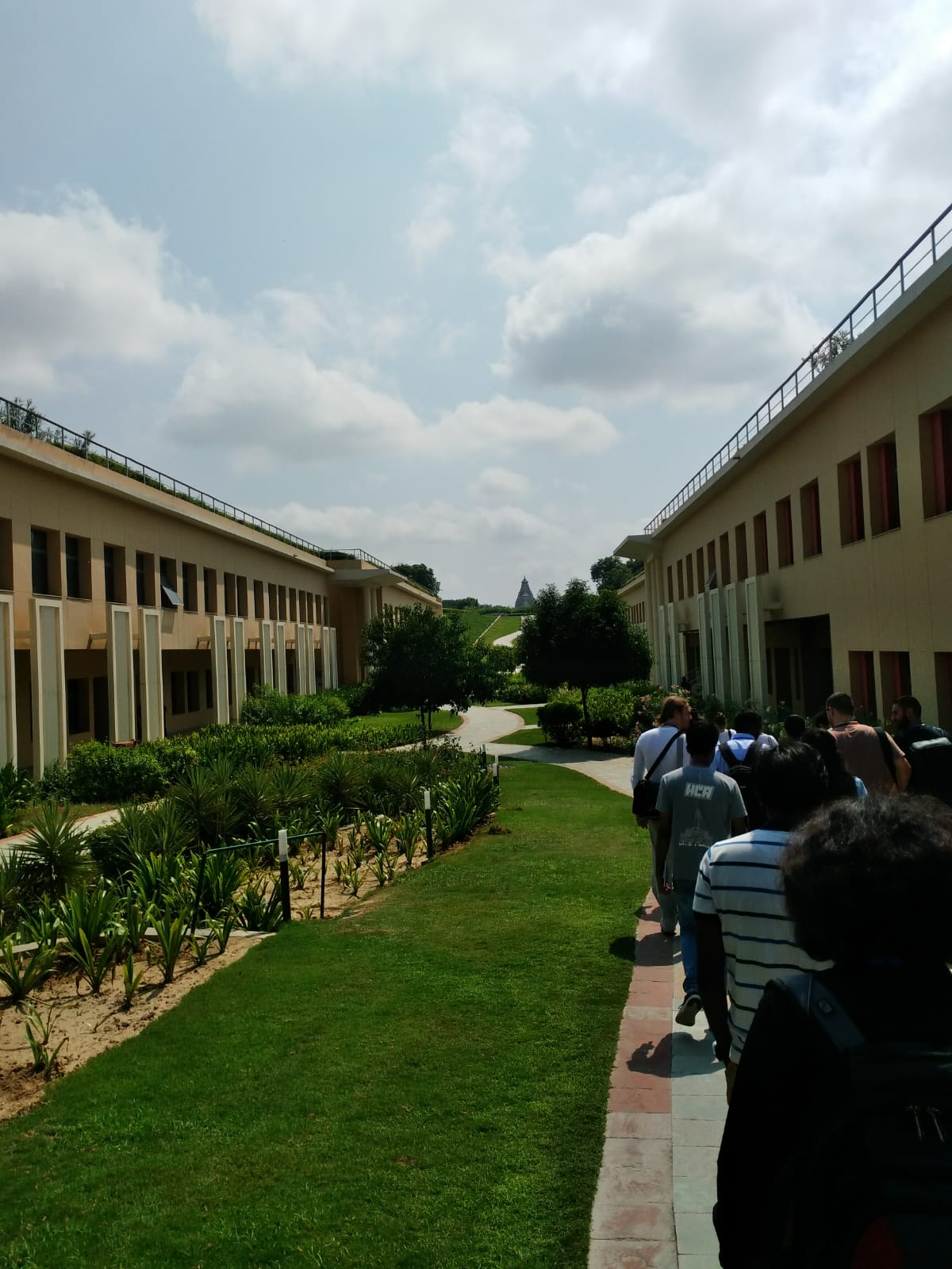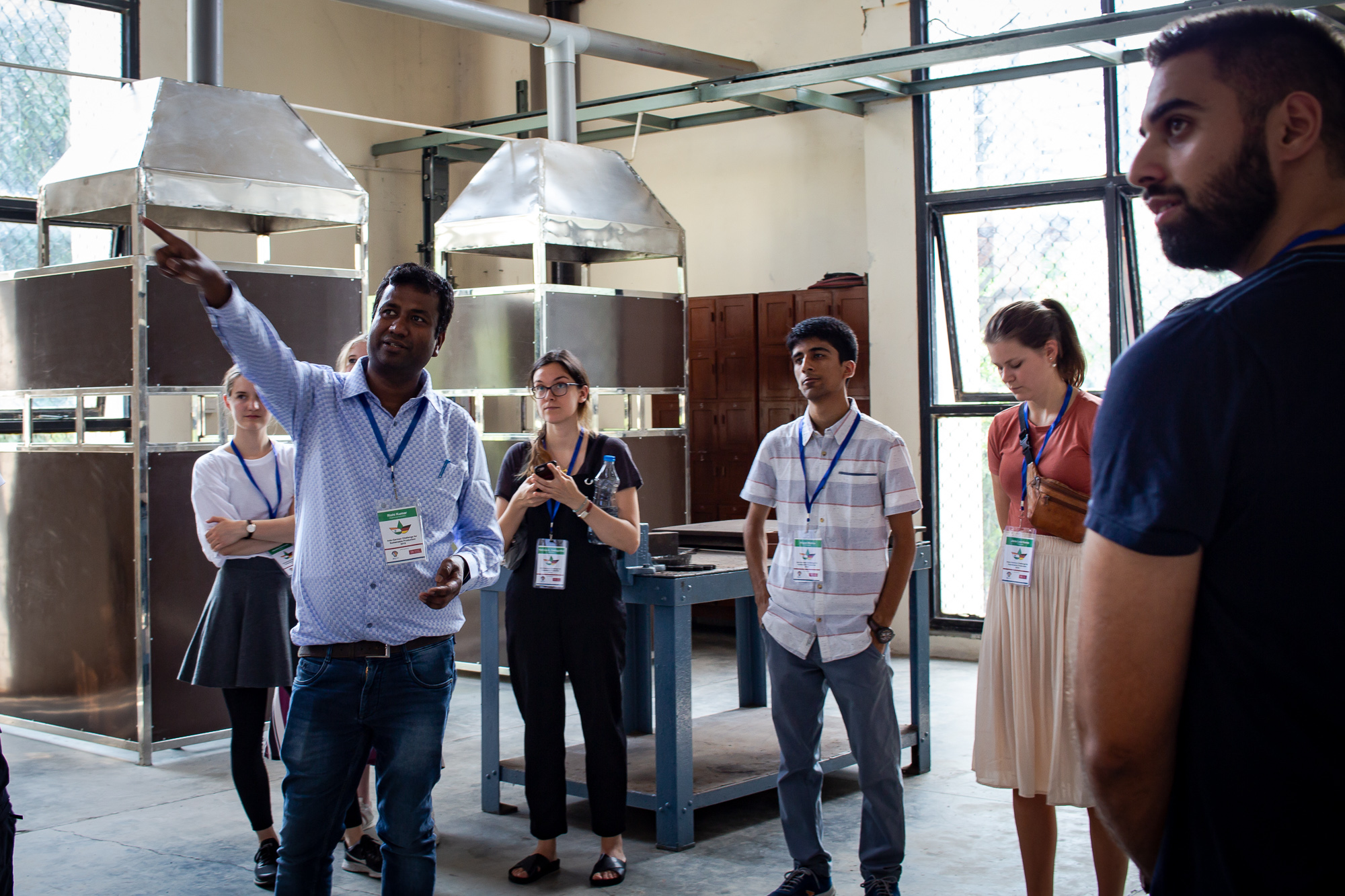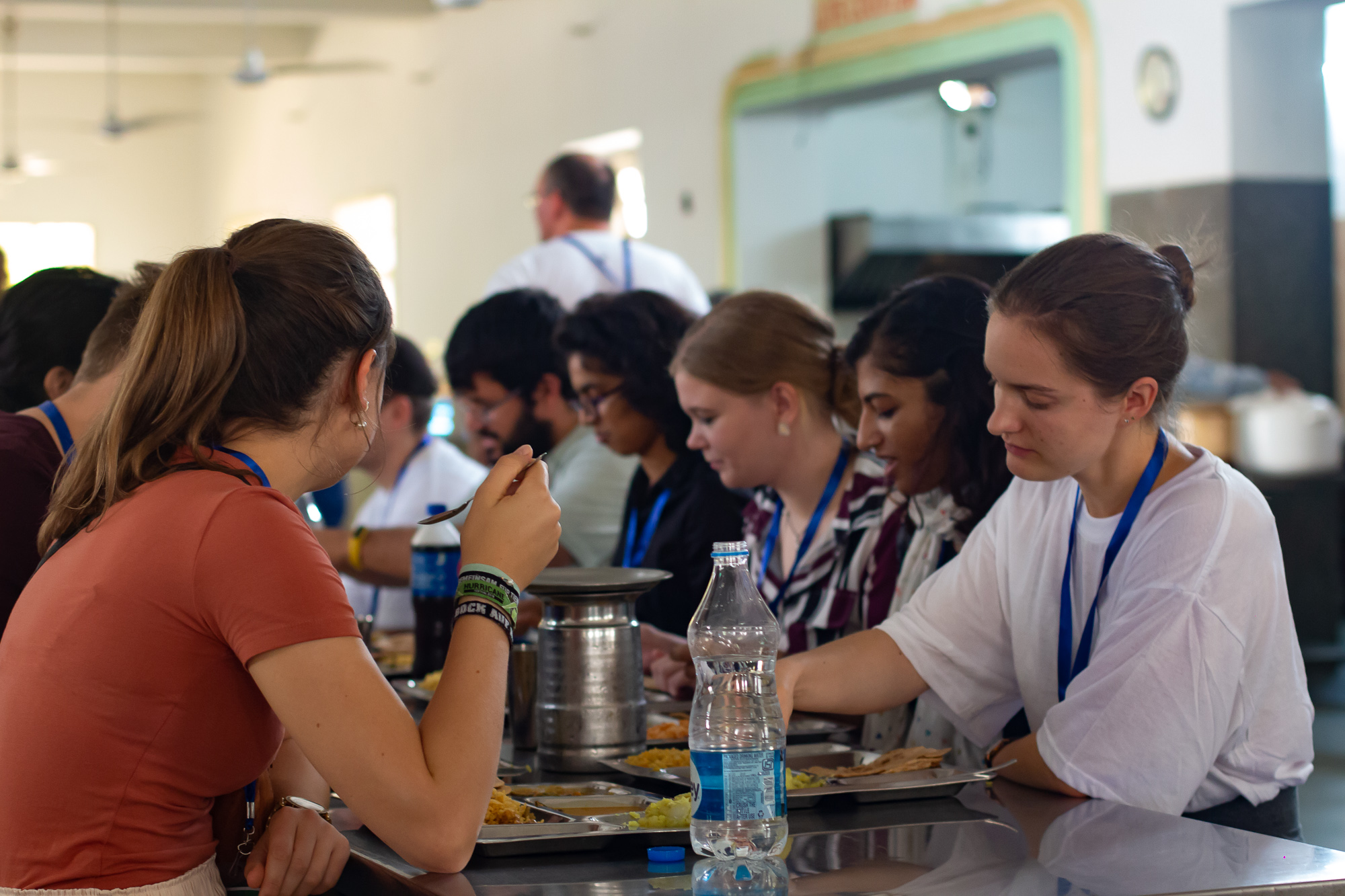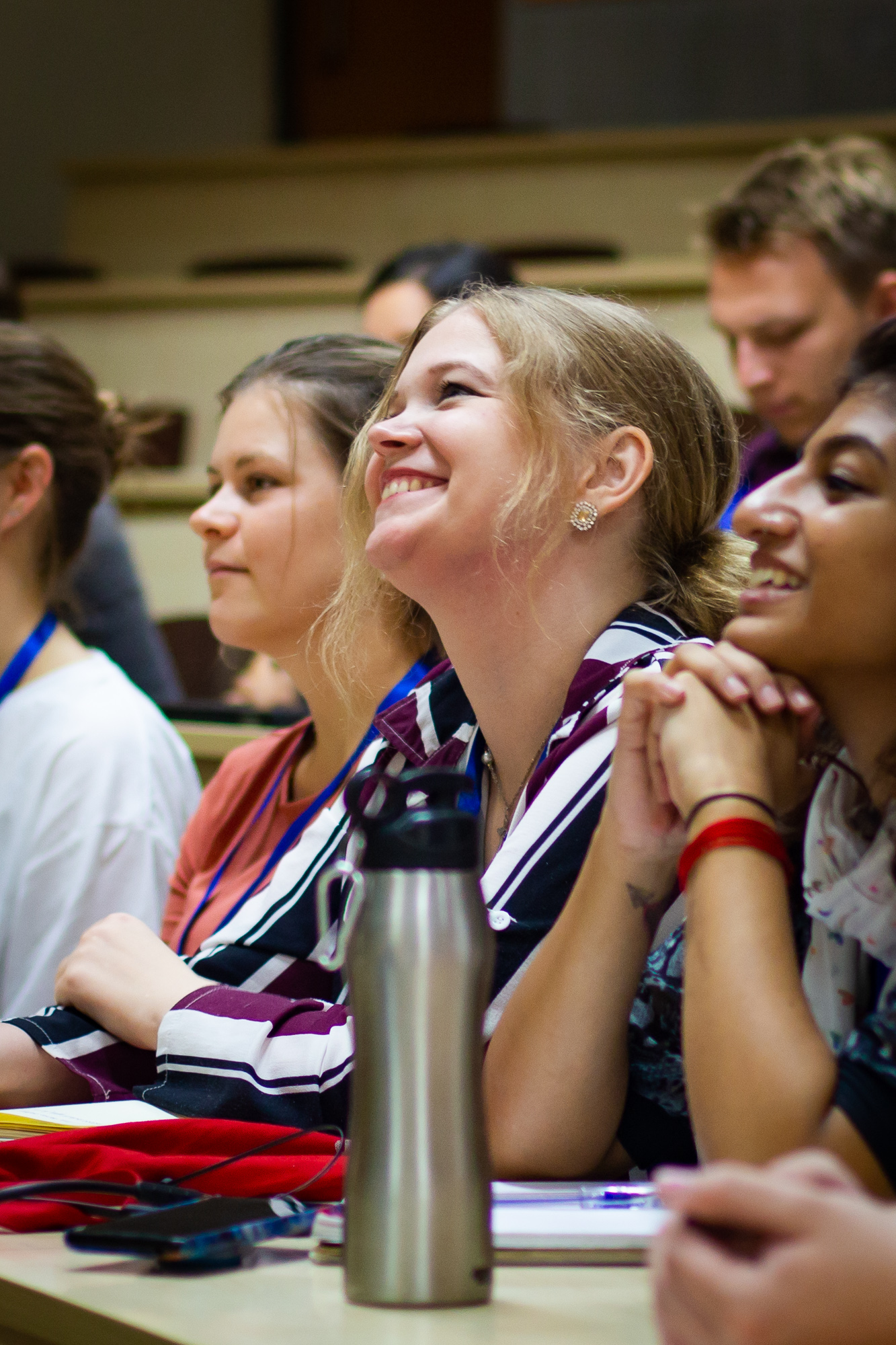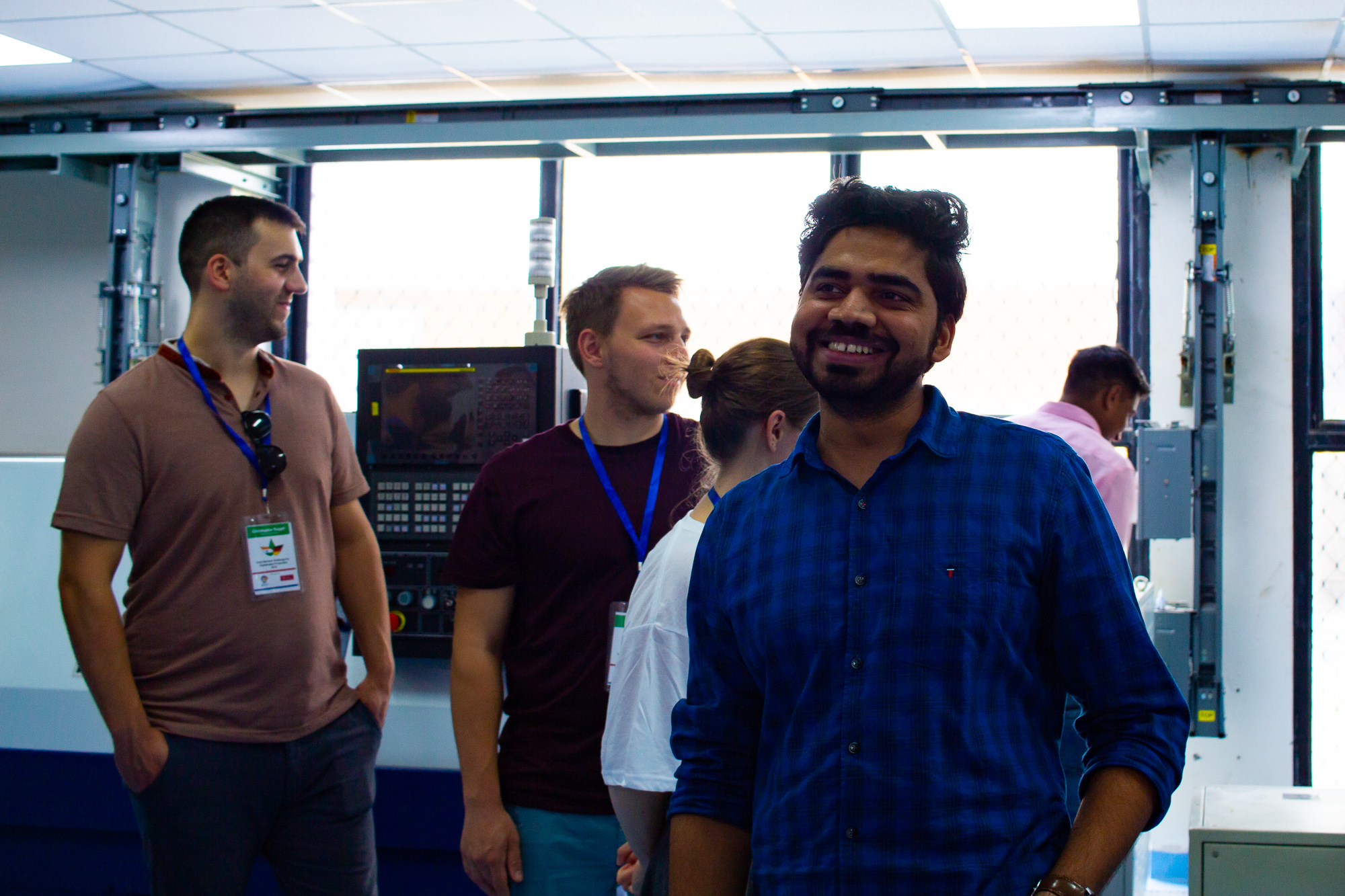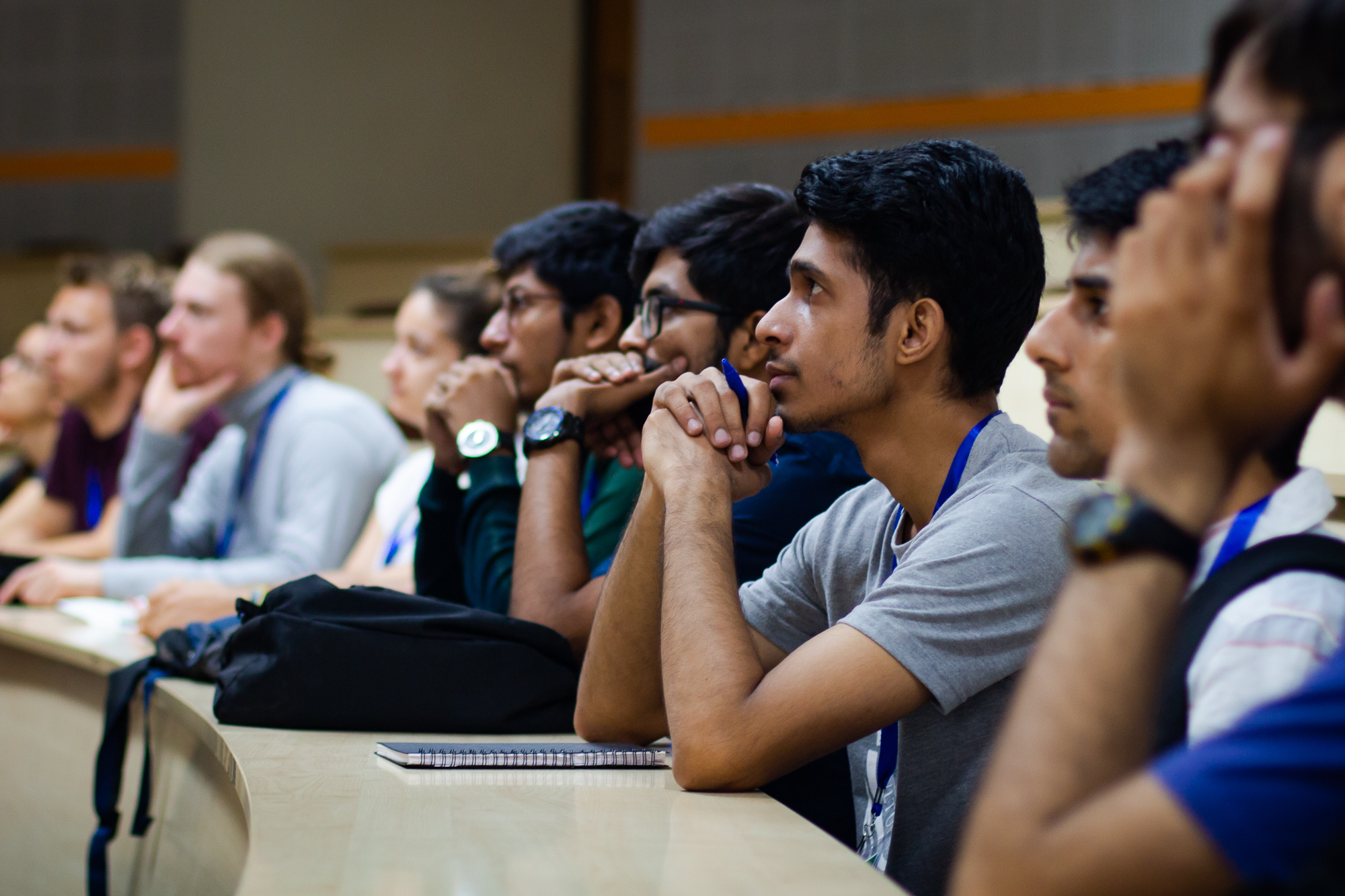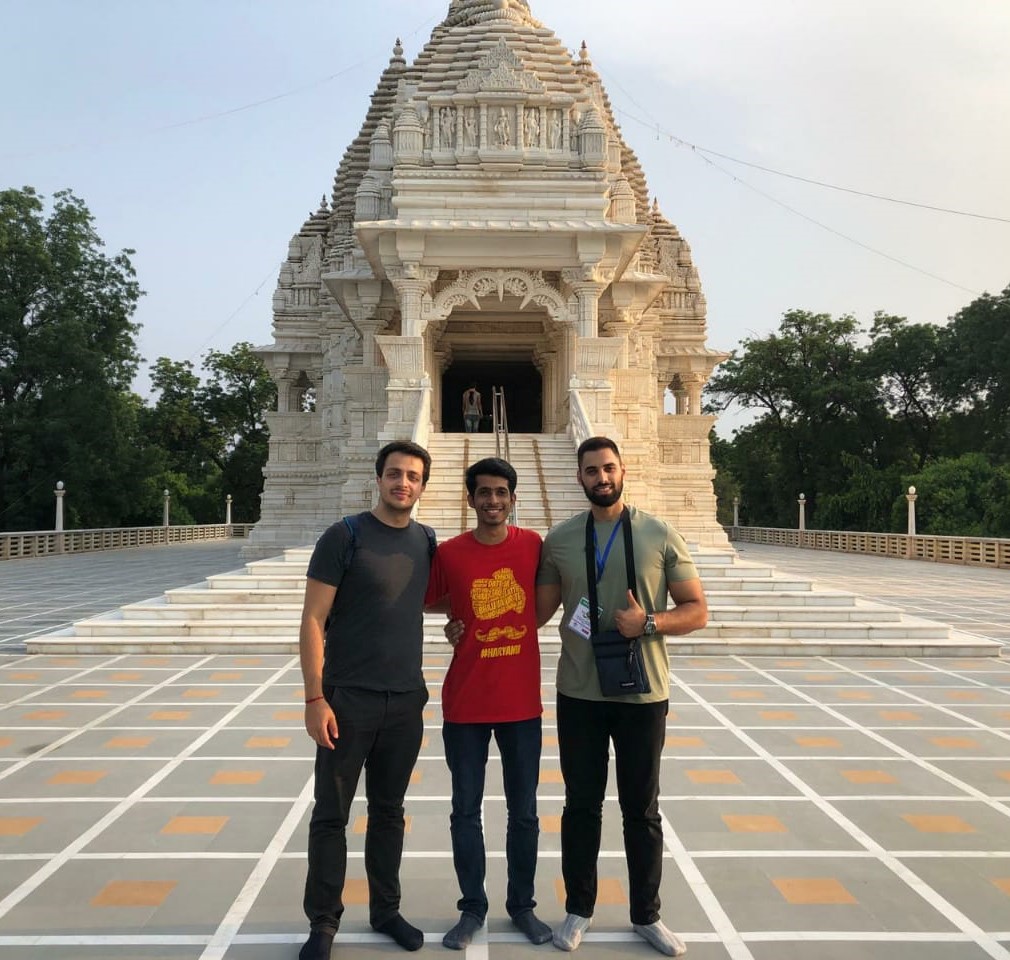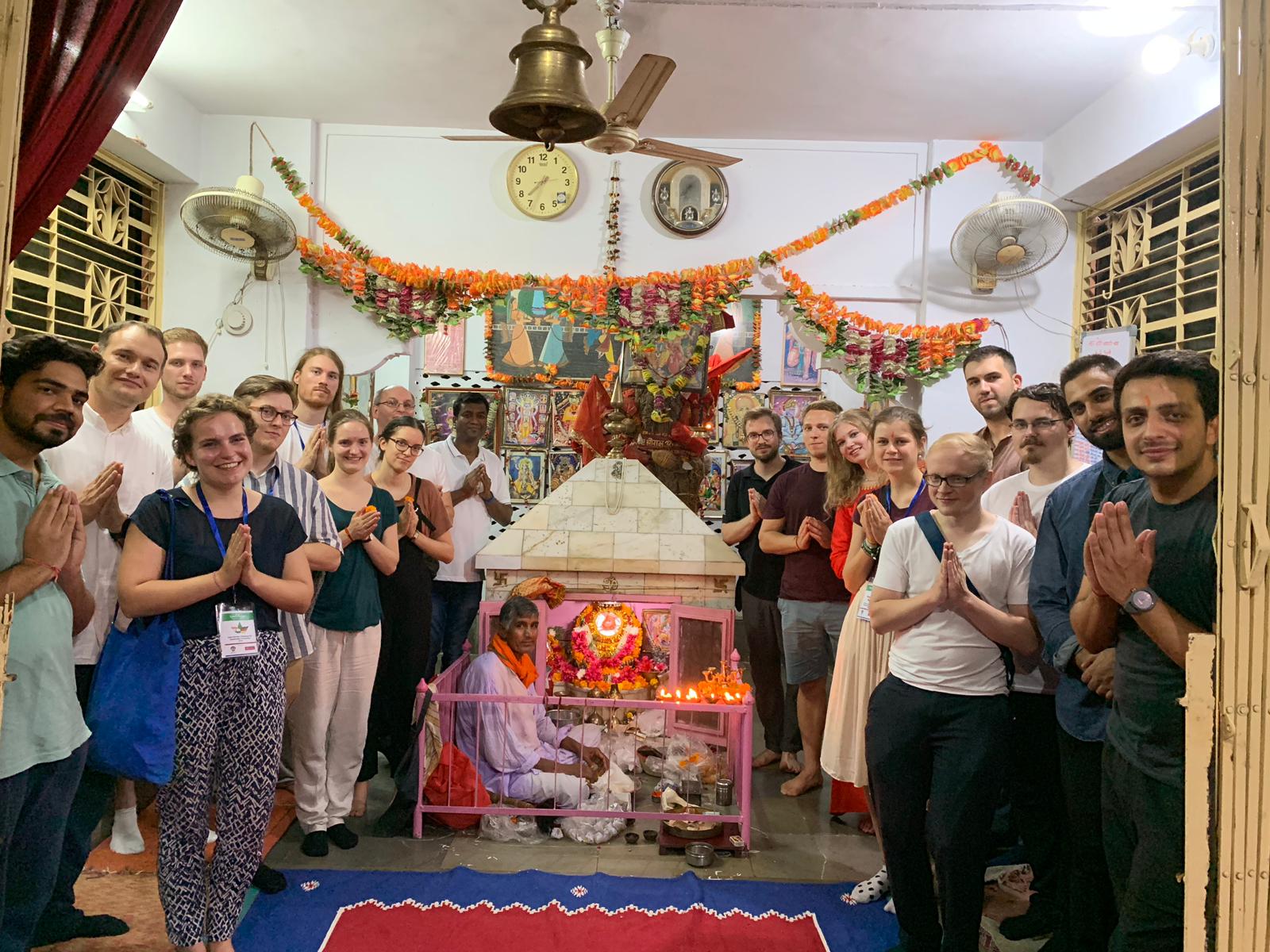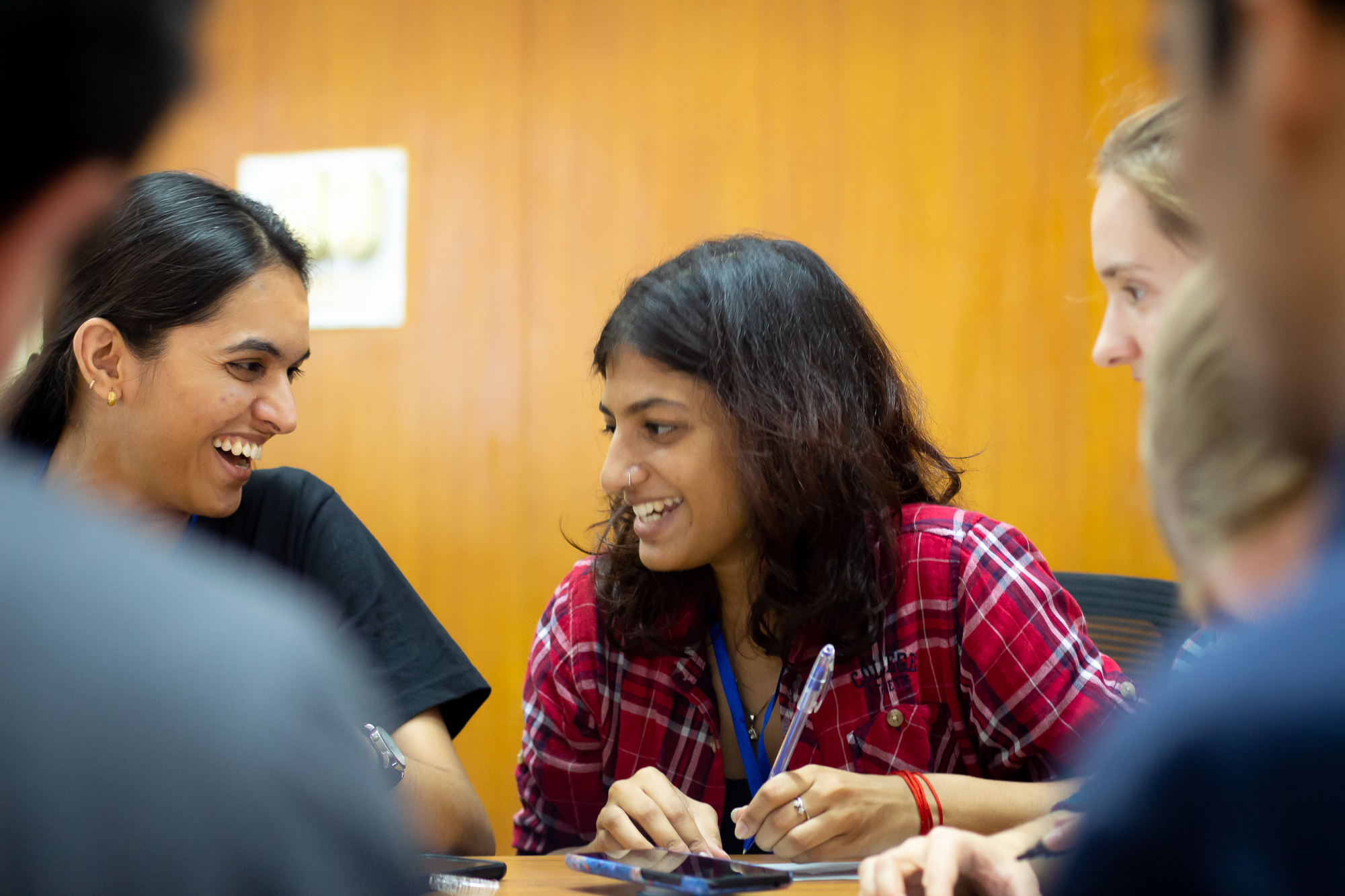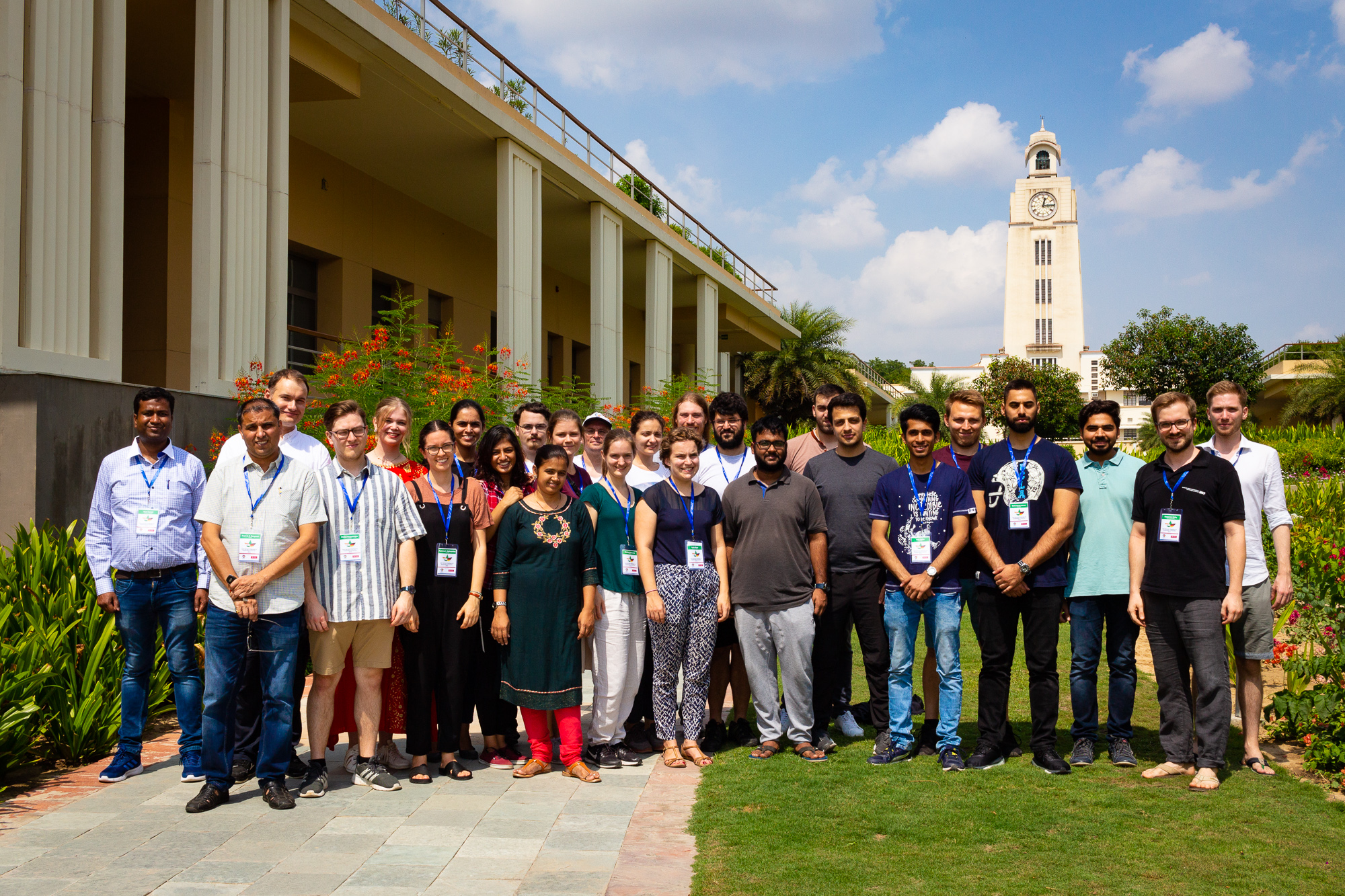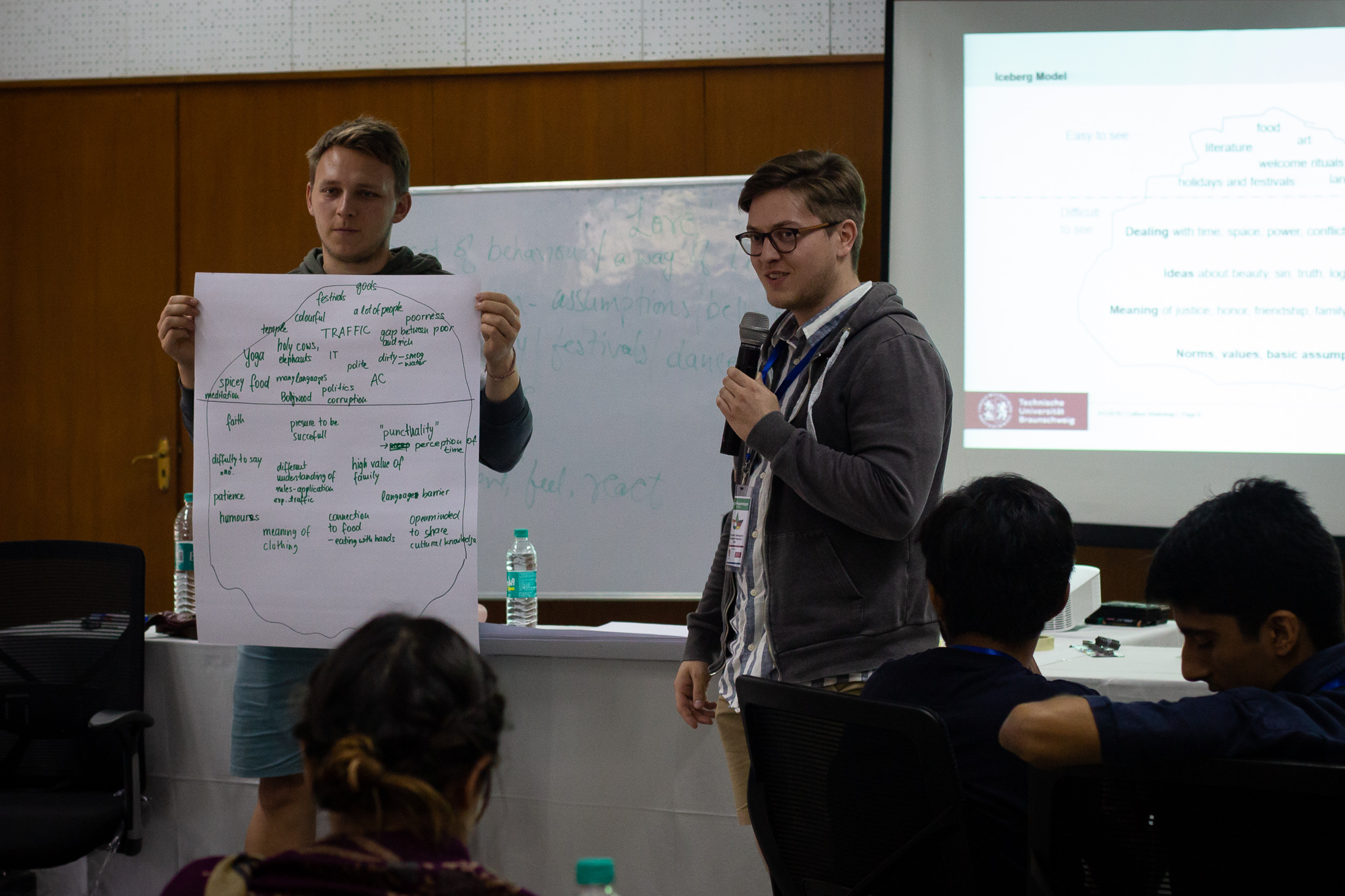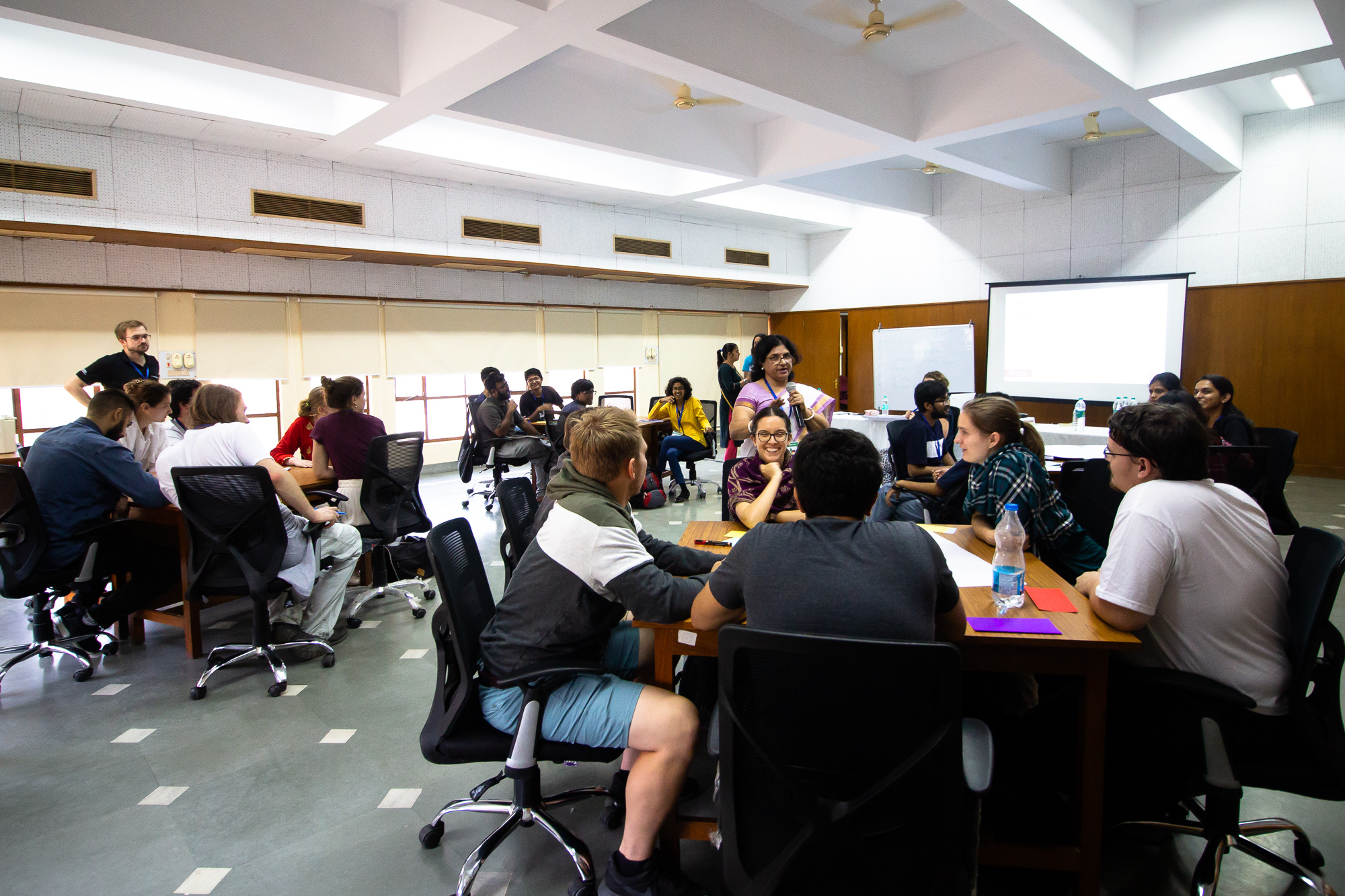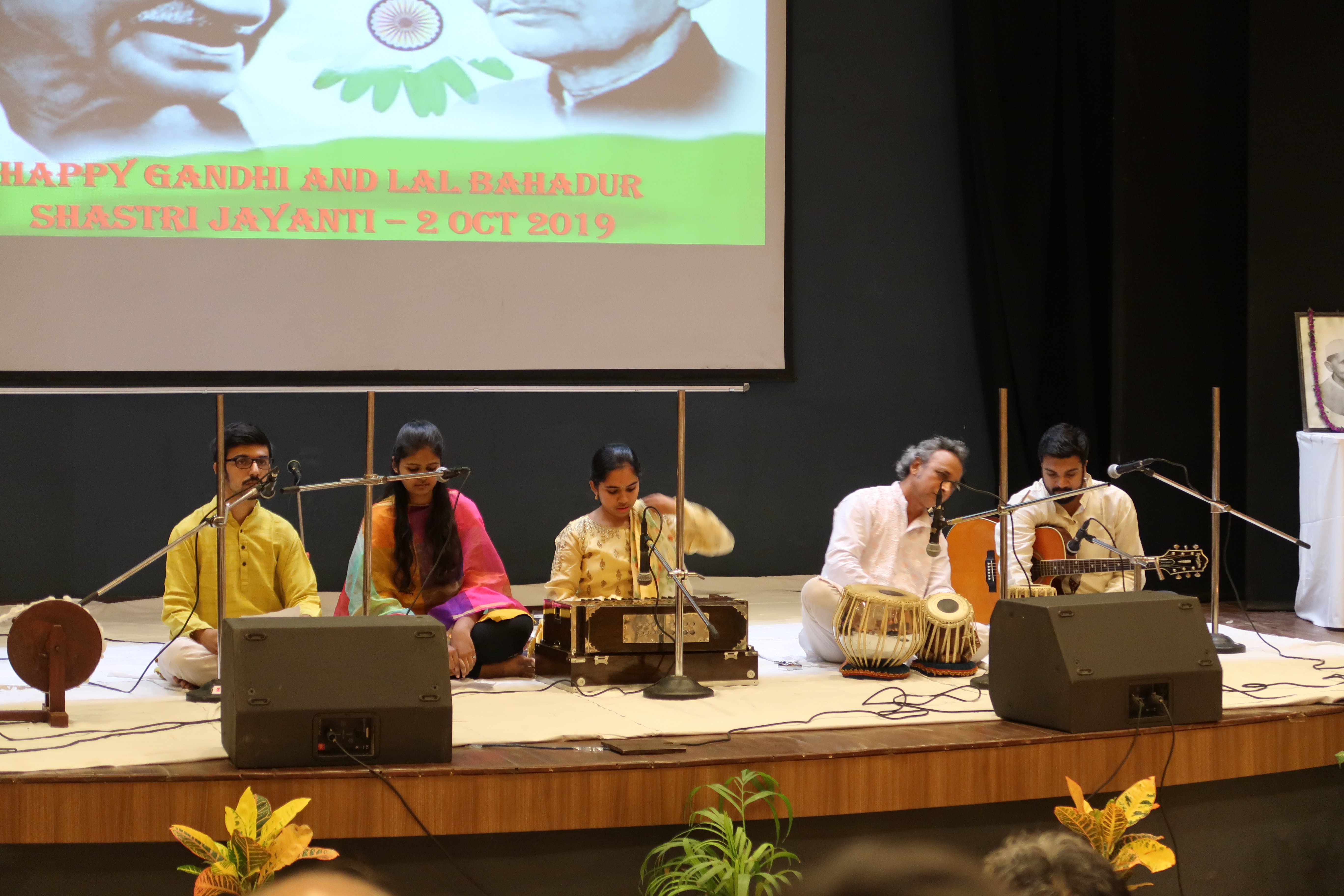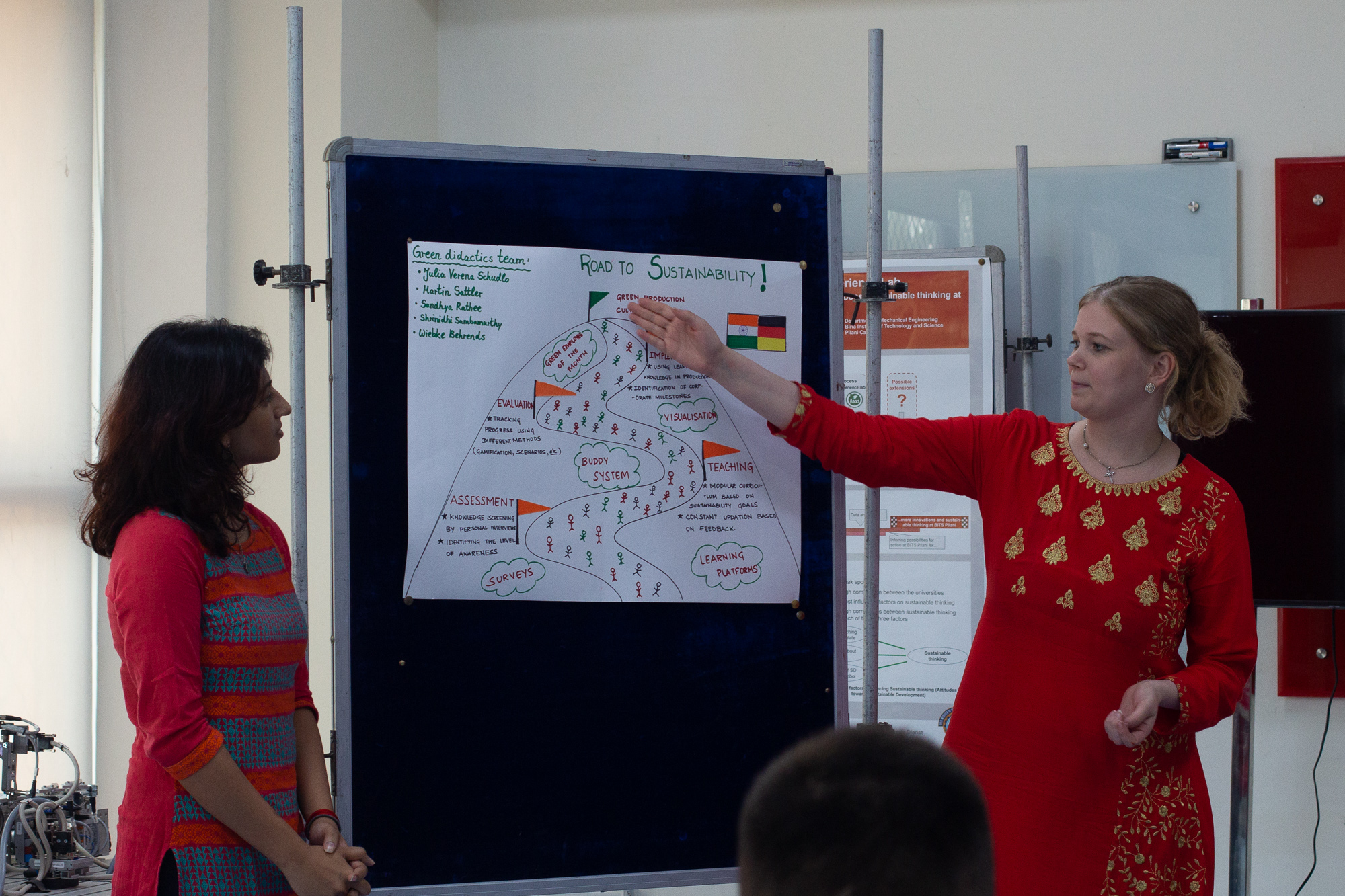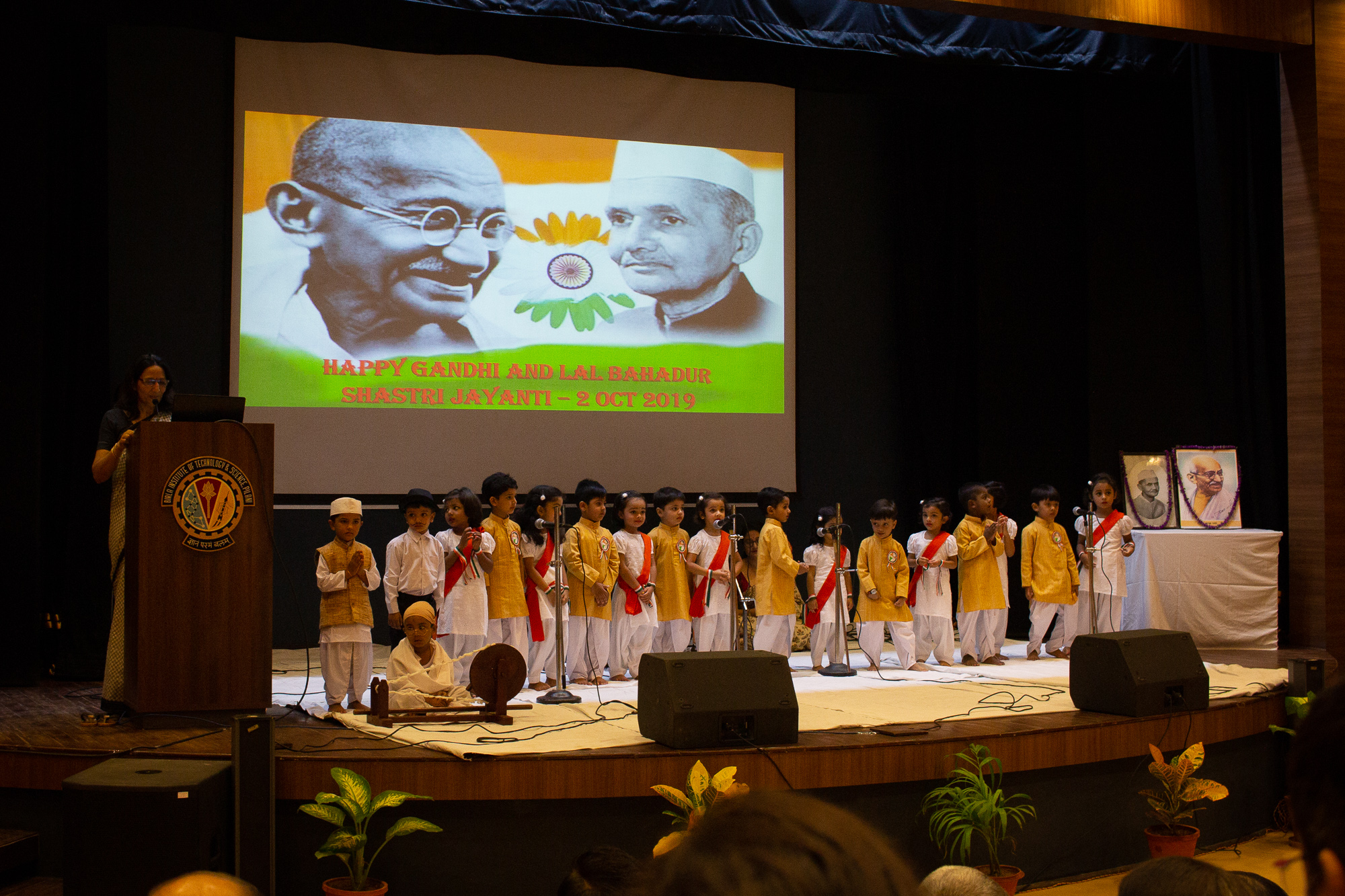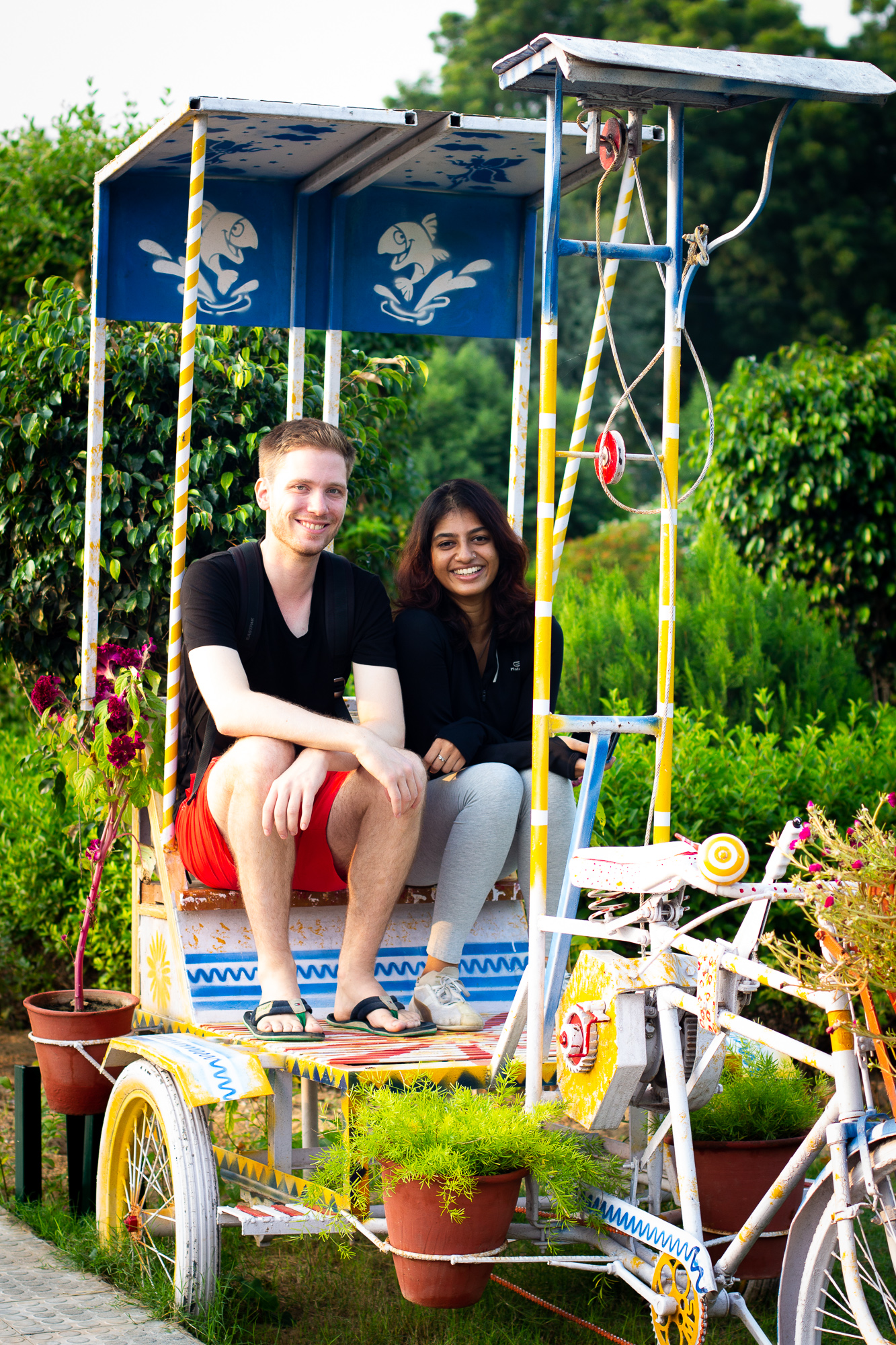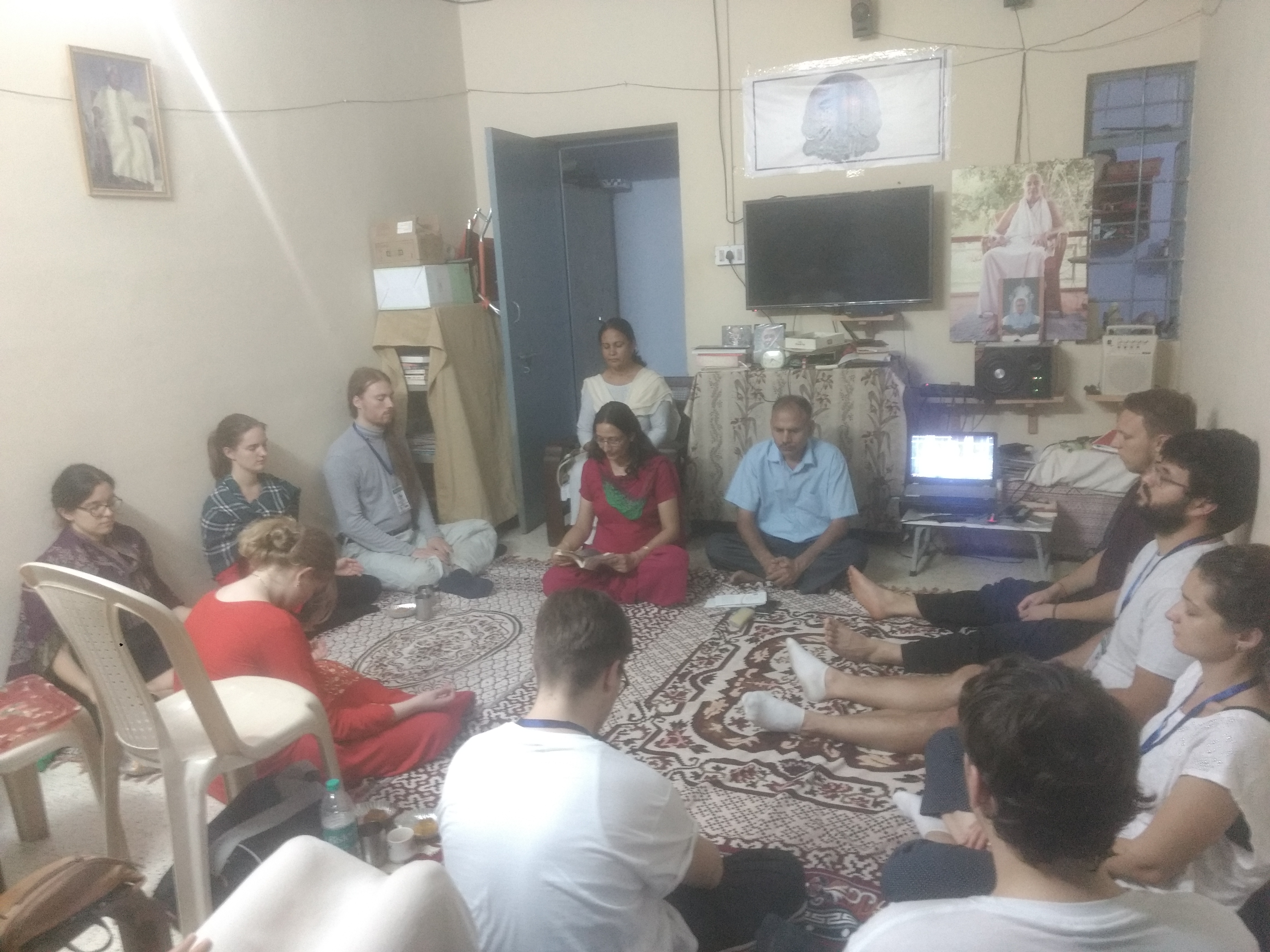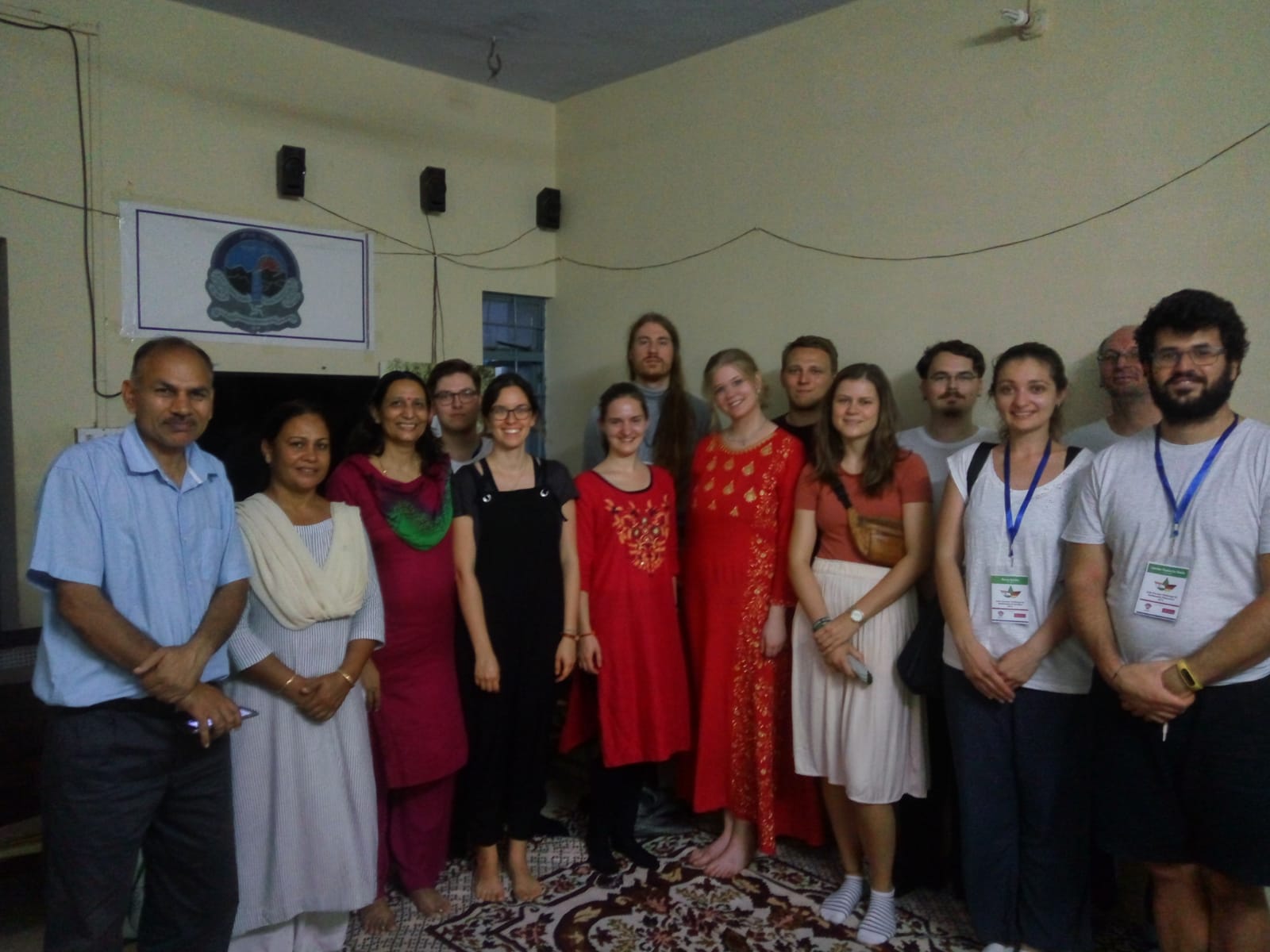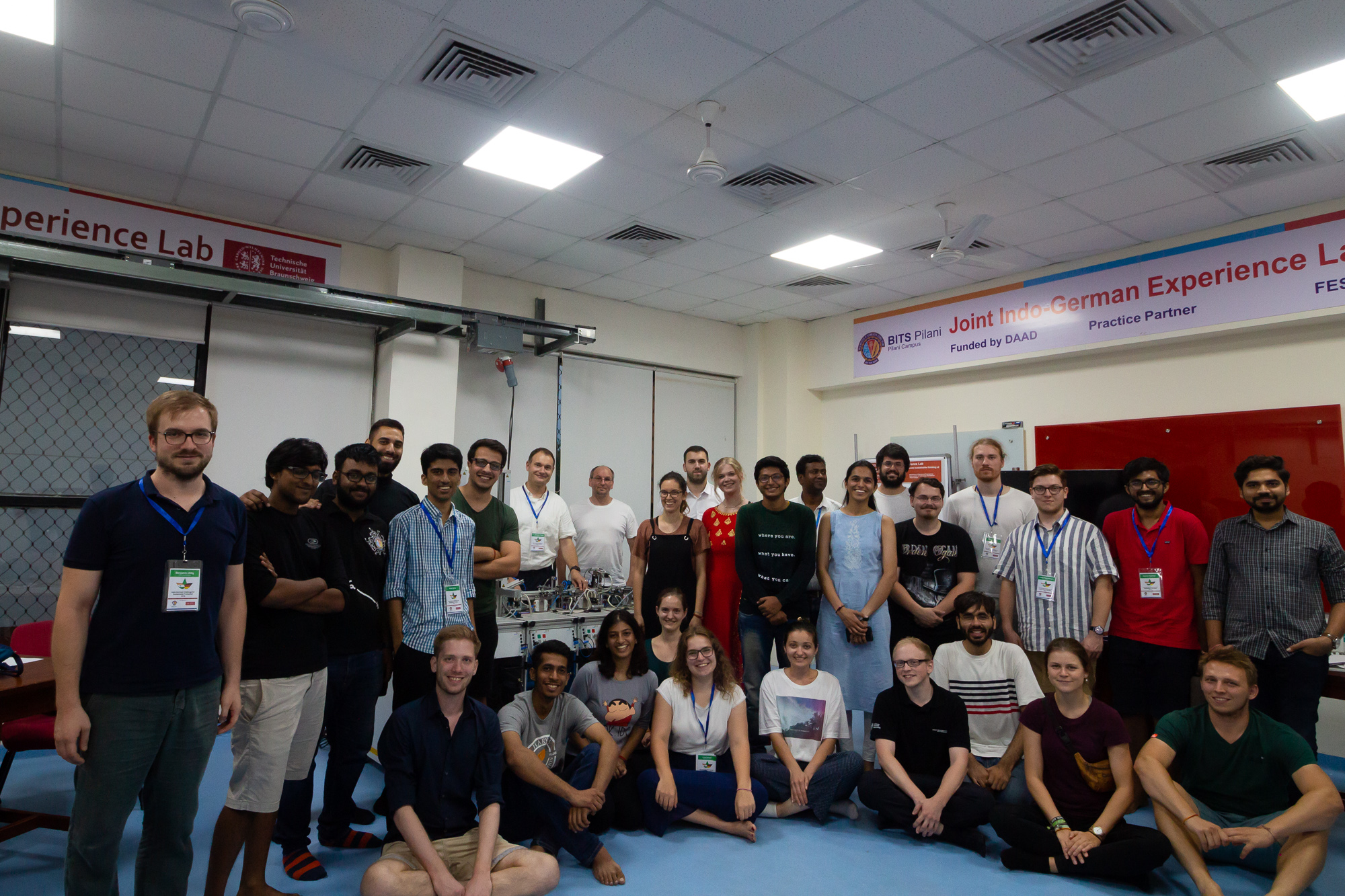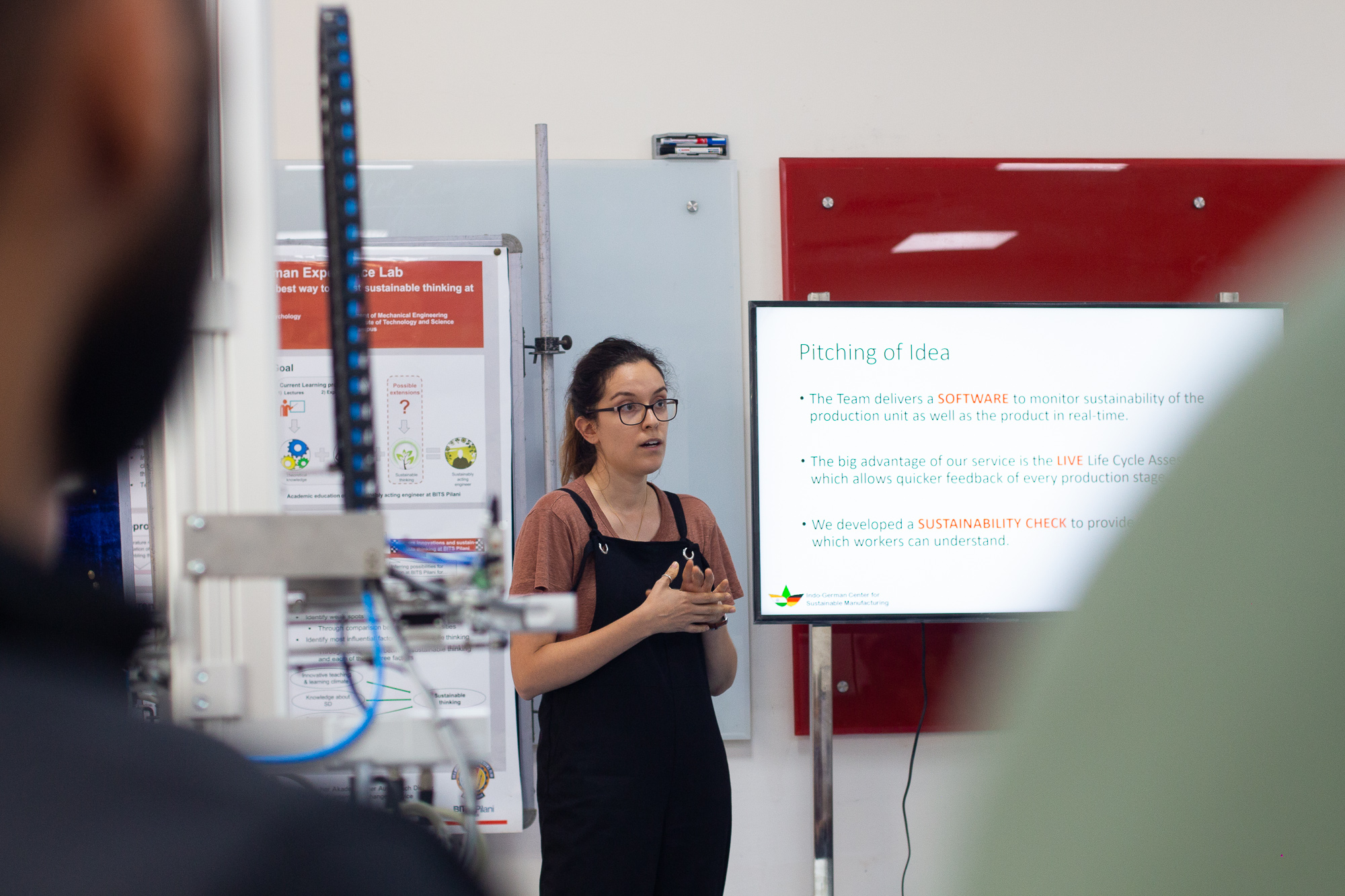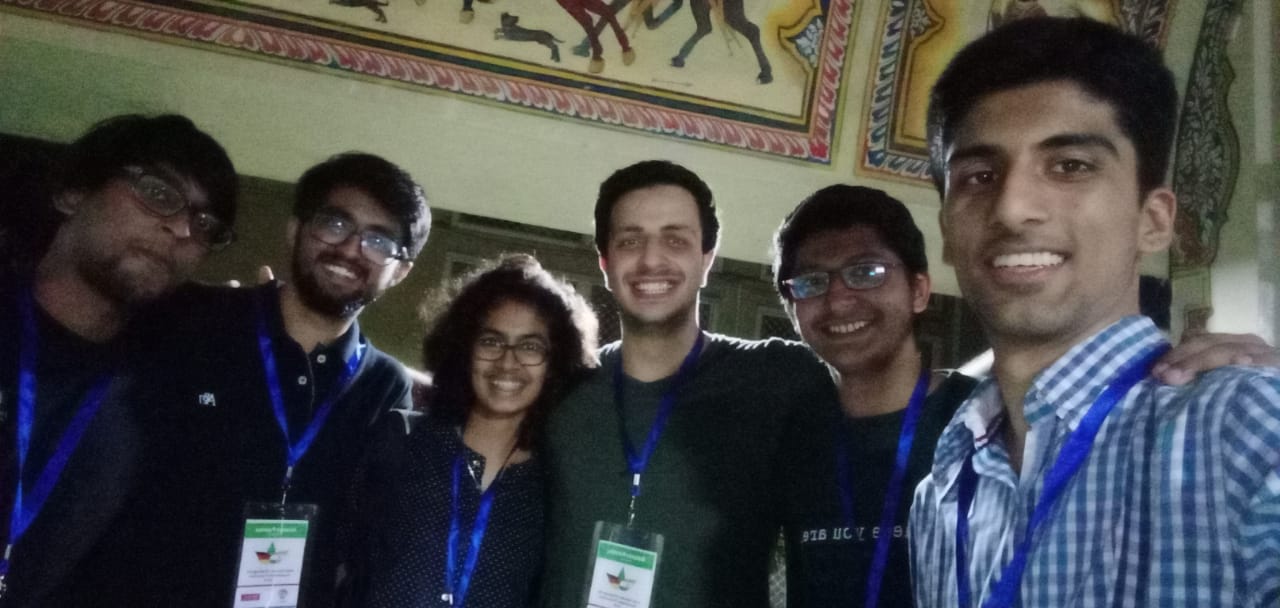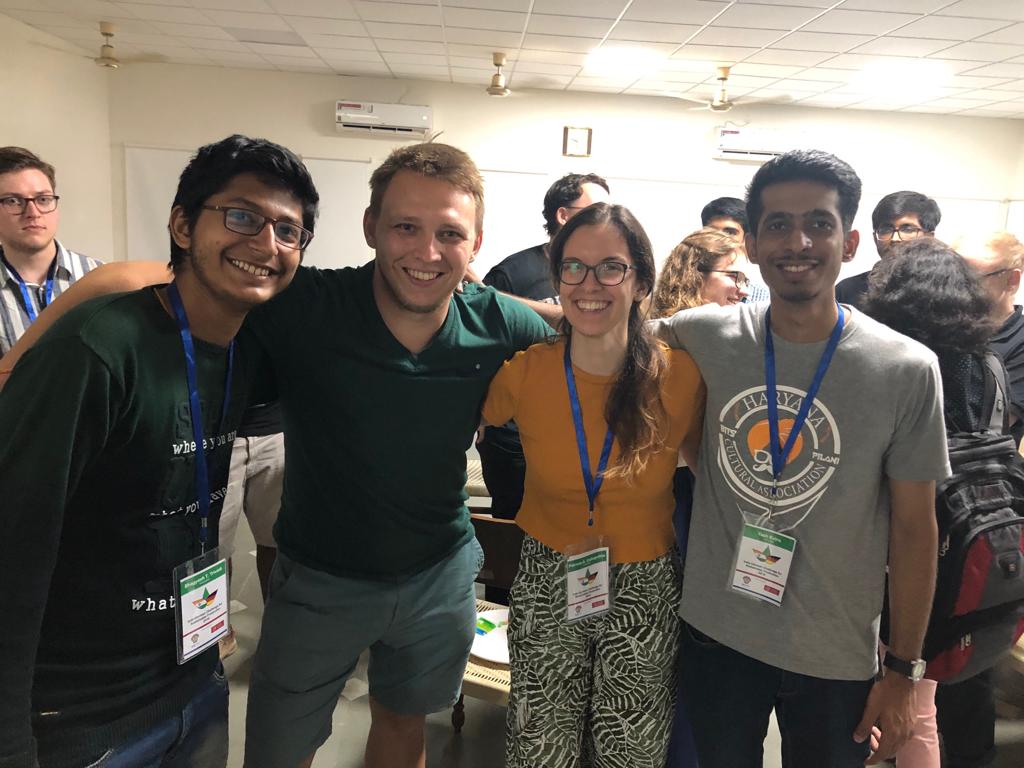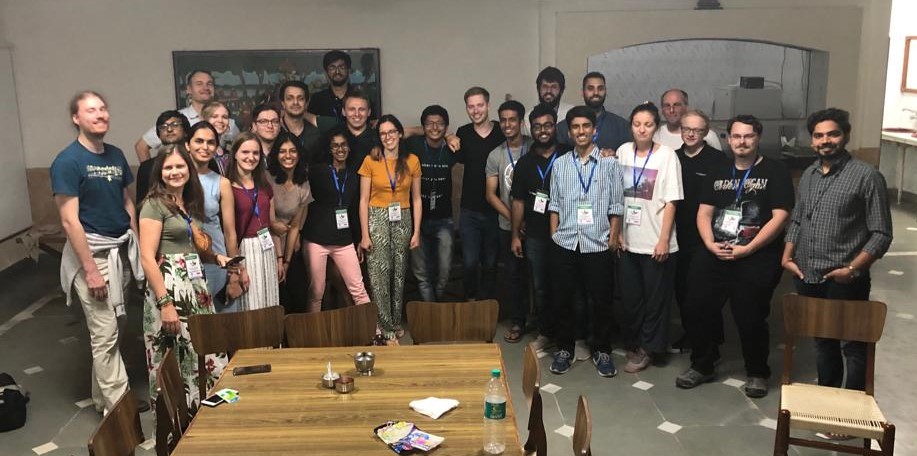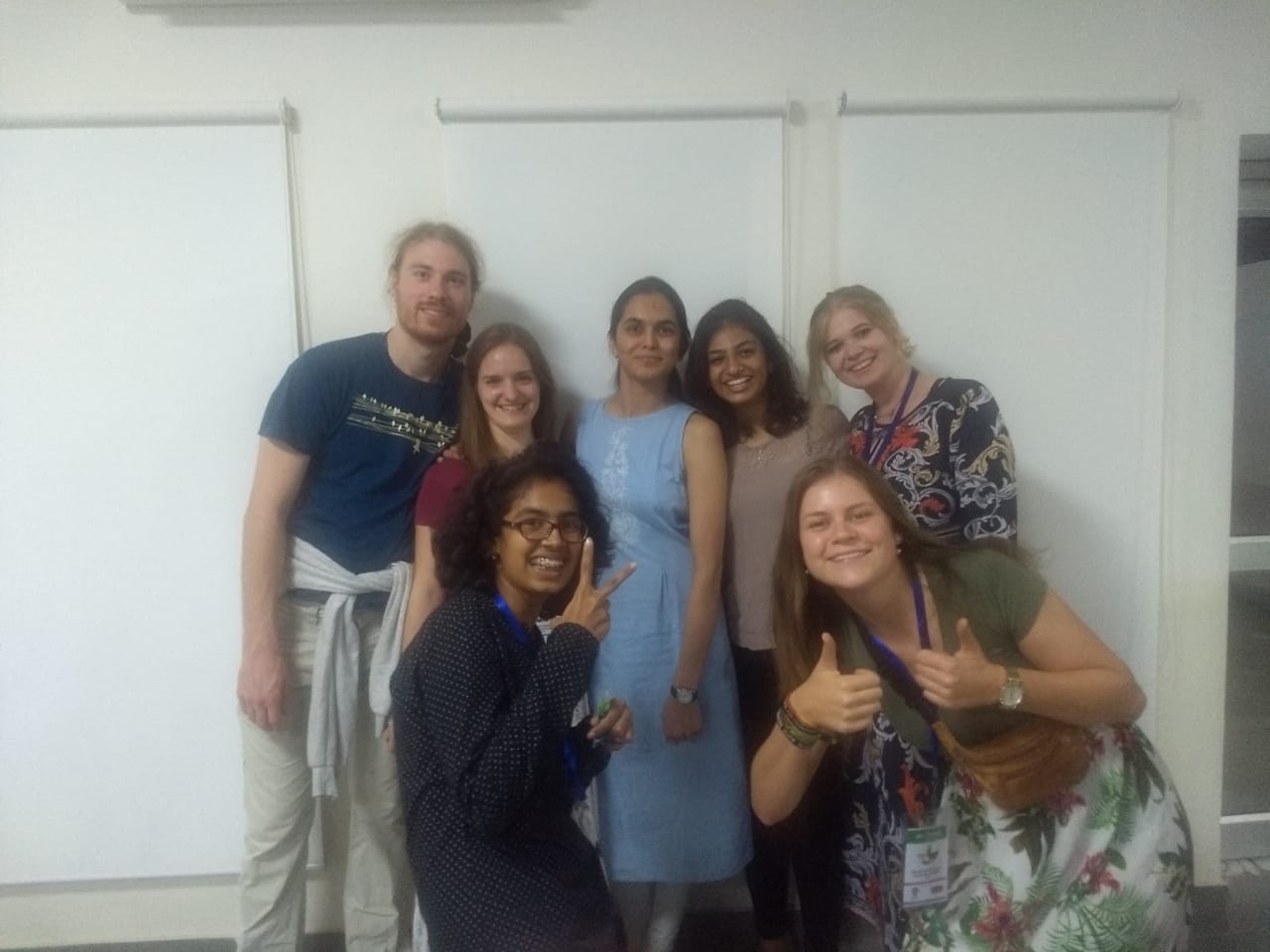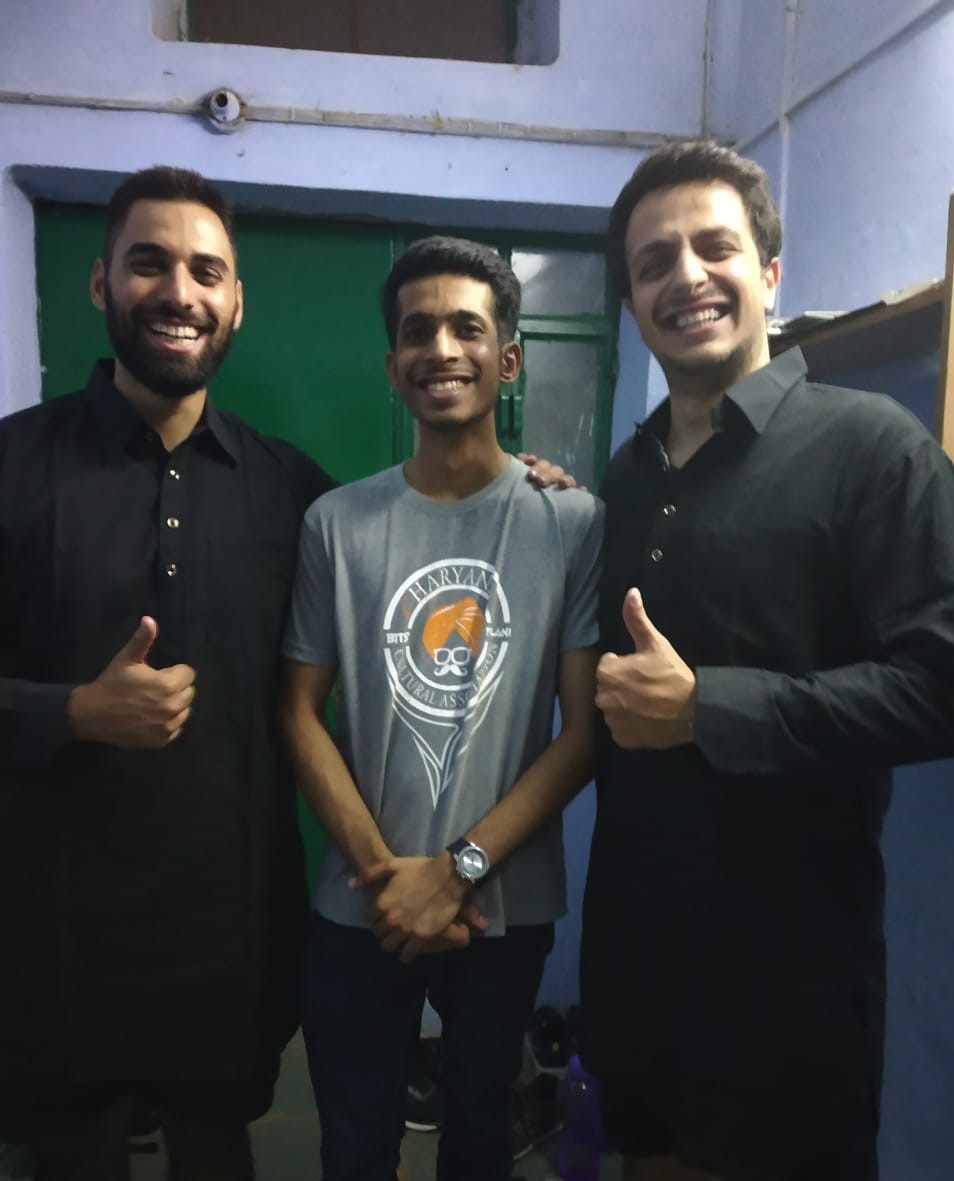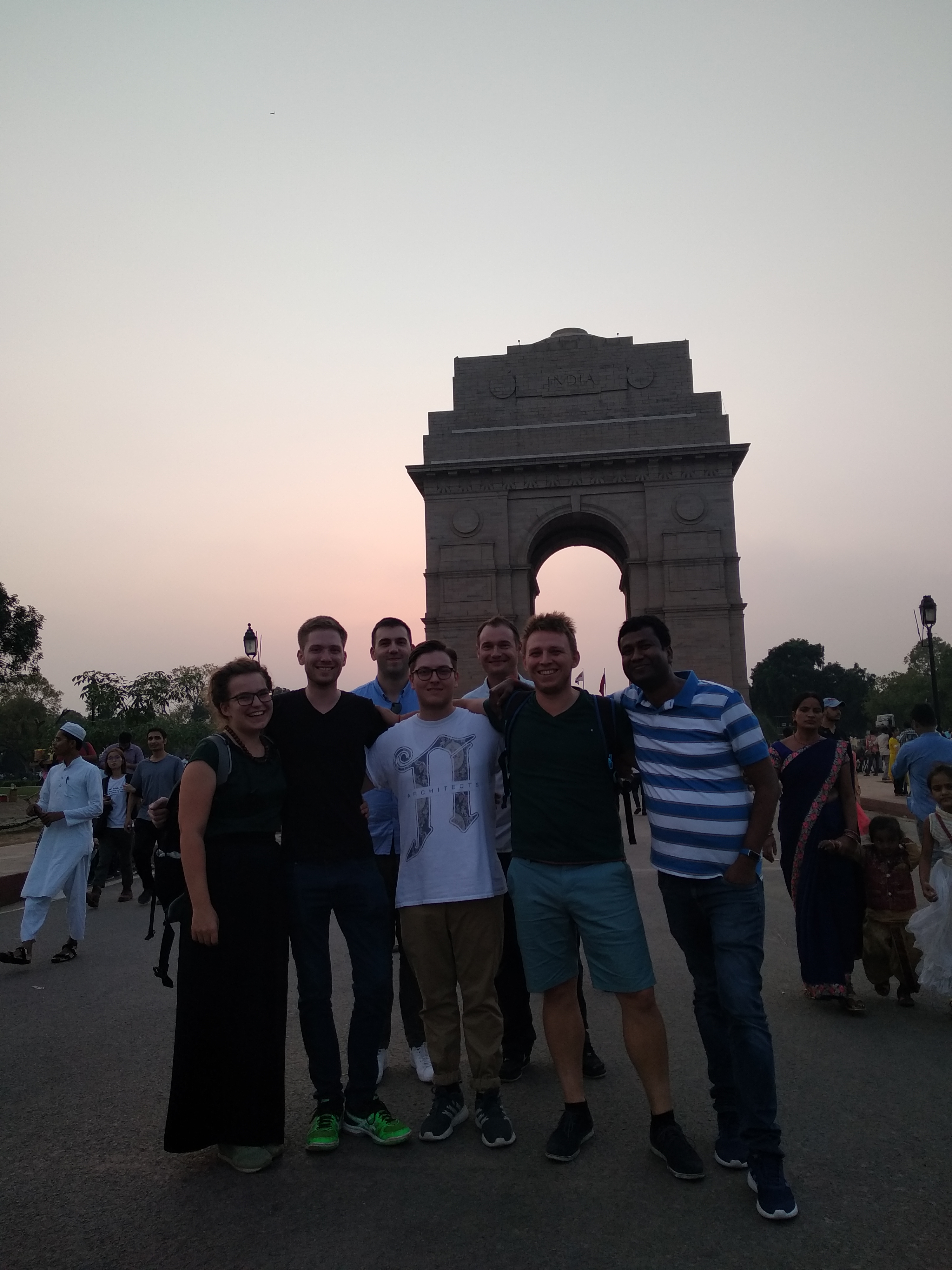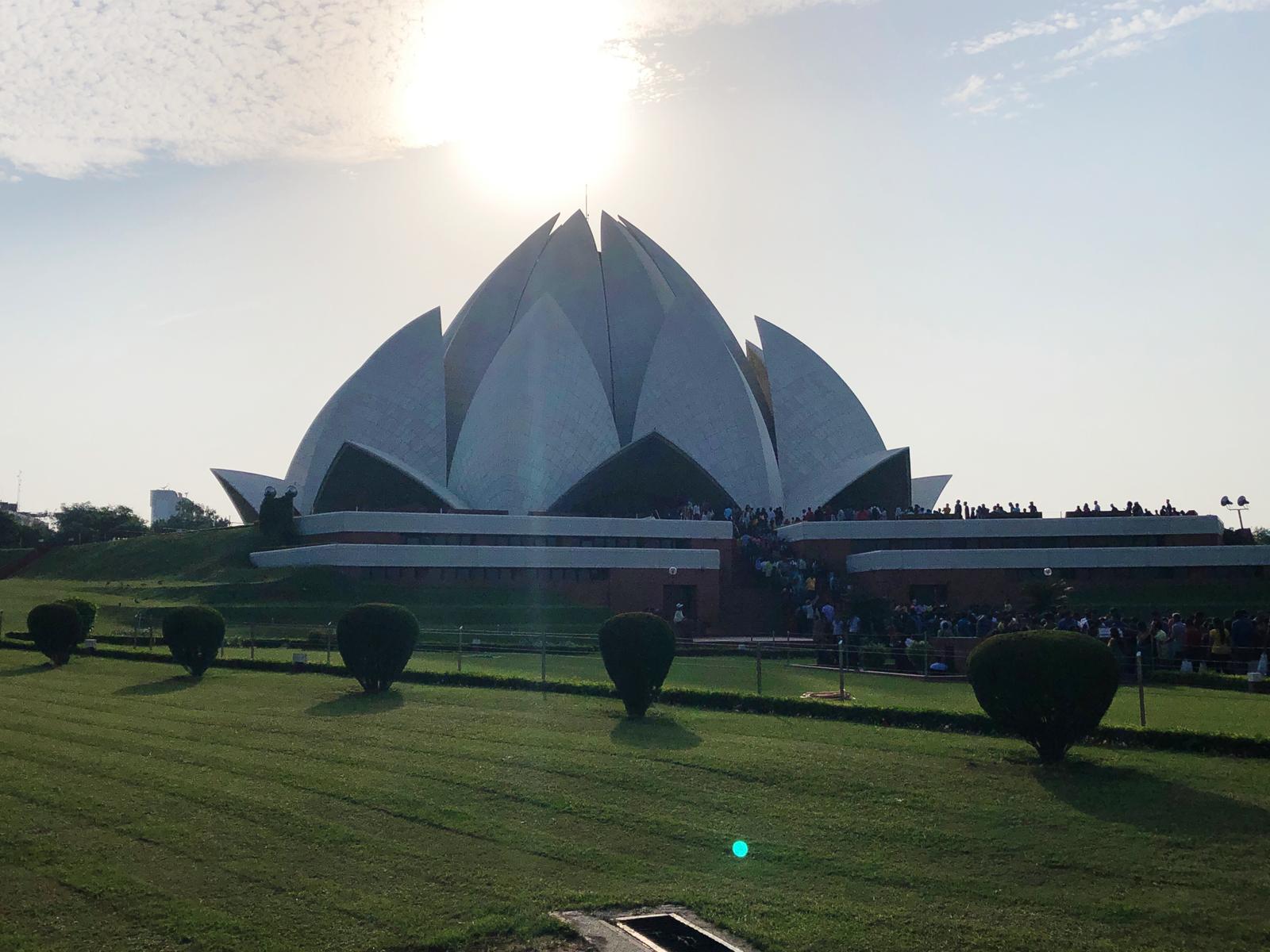Sunday, Report by Martin Sattler and Patricia Araya Galleguillos
Our arrival in India on Sunday night had a bumpy start. With our luggage lost in Germany and no possibility to know when exactly it will arrive, we had hopes for a better morning. After breakfast we all went to a mall: time for shopping to replace some of the things the airline had lost.
After that we drove in a small bus 5 hours to Pillani. The drive was adventurous, shaky and loud. But the bus driver looked like he knew what he was doing and with no possibility to change any circumstance, we just tried to absorb every impression. During the late afternoon we arrived save and sound in BITS Pillani. A few near death experiences made us happy to leave the bus.
Our first dinner at BITS was together with the Indian students and faculty members. To get to know each other a little bit easier and in a fun way we played a game. This was a perfect way to start the Indo-German Challenge. The Indians gave us a warm welcome and we were all curious for the next days to come.
Monday, Report by Philipp Regenbogen and Frank Burkard
On Monday it was time to get the IGCSP started. After having breakfast at the VFAST we walked across the campus to our lecture hall. There all the participants got an introduction to BITS Pilani, TU Braunschweig and the challenge itself. Since most of us did not know how the group work should proceed, the organizers came up with this vivid, interesting topic: A german company wants to expand to India and produce its product there. The company wants to focus on a sustainable production and also employ less qualified workers.
It is our task to overview the production line for the already existing product and develop strategies how the production can work in the best way. The participants were separated into groups to work on 4 different topical parts of the value chain. The four topics are data acquisition, live-LCA, AR/VR and didactical concepts.
After the grouping we walked to the mess to have lunch. Compared to the mess in Germany, this was way different. Before entering the mess, we had to wash our hands carefully because in India you usually eat with your hands and cutlery is used rarely. Inside, two different sets of plates (veg and non-veg) were offered and we put the food we liked on our plates ourselves from bowls. This helps to reduce food waste because everybody can decide how much he or she can eat. And for the ones who can’t get enough, the best thing in the end: refill is free!
After lunch we stated our group work and also got to know each other better. At 4 pm we learned about the Indian chai break. We enjoyed some nice conversations while having tea and cookies. Afterwards we heard a lecture about Life Cycle Assessment by Dr. Thiede and had another group work session. Most of the German Students wanted to get an Indian SIM-Card, so we walked to the Connaught place in the evening to get a few. Unfortunately, this didn’t work out as planned: The device, the guy in the shop was using didn’t work properly, so we just got two SIM-Cards ready and had to come back the next day (and the next day.. and the next day.. and the..).
Tuesday, Report by Julia Verena Schudlo and Wiebke Behrends
We attended a workshop at BITS Pilani that explored the cultural differences and expectations of the Indian and German students. In the first step we were put in 4 groups. In those groups us German students had to brainstorm our cultural stereotypes about the Indian culture and the German culture using the Iceberg model and vice versa. It was fascinating to listen to the different viewpoints, especially listening about what each culture thought of their own values, characteristics etc. Mutual respect is what permeated throughout the presentations and is something that made it a truly special experience. Each culture started by saying that this is their subjective viewpoint with the limited experience we all have in the other culture. It also inspired us German students to think about how we could help the Indian students to experience the German culture when they come to visit us in December. We learned about the different regional differences in India, festivals, values, the different habitual nuances and could ask during feedback why it is this way. A lot of topics came to the surface, from the difference between clapping and knocking on the table in University in India and Germany, to our shared desire to be hospitable and be able to learn as much about the other culture as possible. It was very useful to have such a direct, respectful and open exchange in the beginning with such excellent Indian professors. In our opinion, it was the corner stone to breaking the ice and getting to know each other better, which was imperative for the future steps of the Indo-German challenge in Sustainable Production!
Wednesday, Report by Jara Leerkamp and Stephan Balhorn
After the ceremony ended, we went to the new workshop. After the arrival we got together in our groups and resumed the group work of the previous day. For the coming first harmonization session we were tasked with further refining our current ideas and think about a way to present them. For the lunch break we were again at the RP Mess. After lunch the first harmonization session was upon us. After the presentation of each group there was some quick feedback from the students and the professors. Following the harmonization, there was another group work session which at least for the groups in the JInGEL lab was rather used for more social interacting with the Indian students. After the working part of the day there was the opportunity to take part in a meditation class lead by professor Devika. For the participants it was a nice and fascinating experience.
Thursday, Report by Mehratsch Kohsar and Batuhan Karataş
After delightful all time in Pilani, Thursday was the day of farewell. Thursday was the day we already started talking about the reunion in Germany in December. We spent the day by working on our projects and making plans for the next months. At the evening, we enjoyed the perfect Indian food all together again at VFAST. After the dinner, we spent the night walking across the campus like around 20 people such a INDO-GERMAN gangster in Pilani. We didn’t have an exact plan where to go or what to do. But we enjoyed the spontaneous walk and laughed every meter. If you make some friends from other countries, of course you have to learn some part of their language. (We are for now focusing on just Hindi! but respect all other languages in India) We learned some Hindi words which are usable and funny to say and also of course some bad words we are not allowed to say loud 😀 Of course we taught them some basic German which mostly allowed to say loud.
After the long walk on campus, I had the feeling that nobody wanted to leave. Everyone was trying to enjoy every minute they have together and immortalize the moments by taking photos. This was just the end of our time in Pilani, but we will still enjoy the time in Braunschweig in December.
In addition, you don’t have to think where to eat on the evening in Pilani. The most delicious food we ate in India is at NCA. Imagine the following scenario. The sun has set after a warm and exhausting day. You want to let the evening fade away with a light dinner and hot chai. BUT the BITSians mention “ANC” all the time. You hear: “9 pm at the ANC” or “see you at midnight at the ANC”.
Normally you think of active noise cancelling headphones when you hear the acronym ANC. But in BITS Pilani it is short form for “ALL NIGHT CANTEEN”. It is a pretty cool place which transforms from 8 pm on the night to 3 am next morning, from an abandoned place to a bride and loud attraction. We didn’t expect such a crowd when we went to the canteen at 9 pm. In Germany, you eat something light for dinner. At BITS Pilani you can choose between delicious freshly baked naan, various shakes up to the spicy chicken tikka masala.
Friday, Report by Javier Ruberte Bailo and Sena Ipcen
Friday, the adventure in Pilani is about to end. Last hours in the campus and last moments with our Indian friends. We all knew that the moment was coming so we kind of prepared ourselves, nevertheless despite we only were in Pilani for six days it was sad.
We started our journey towards Delhi, while some of the group did not had their luggage and were hoping to get it at the hotel. The Indian road were not a surprise anymore since we already had a taste on the way to Pilani. Despite the linear distance from Delhi to Pilani is only about 160 km, the trip takes about five hours. The landscape was dry, not much vegetation other than fields, many roads were not paved and you could see from time to time vehicles that had been abandoned on the side of the road. In every town were cows and goats running freely, also in some places, mostly medium to big cities it was easy to spot monkeys. Garbage dumps and people looking for “worthy” items like plastic bottles were also easy to see close to the towns.
There were also many bazaars and self-made stalls, where people were selling from interesting fruits that we had never seen in Europe to clothes and street food. Instead supermarkets or shopping centers the locals were buying from small local kiosks. Also, very interesting was to find repair shops everywhere, from motorbikes, to tuk-tuks, to induction motors, to refrigerators. Everything would be repaired, we even spotted a shop selling refrigerator condensers! On top of it, no safety or environmental concerns were to be found. Nobody would use safety gear and the old motor oil would be just drained on the dirt.
All in it was a great opportunity to get know with a different culture, and gave us a bit of perspective about the things we take as granted. A very representative sentence of this was when one of our Indian friends told us that he thought that using drinking water for washing was a waste of resources.

